Radio Azim Premji University
You are listening to Radio Azim Premji University, our campus radio station. Azim Premji University was founded in 2010 with the vision to contribute to the realisation of a just, equitable, humane and sustainable society. On our channel, you can tune in to a variety of engrossing shows on themes ranging from democracy and culture, science and mathematics, and more. You can also experience a slice of campus life. If you are a seeking student, an arts aficionado, curious about science, or just passionate about India, subscribe and start listening. Credits: Akshay Ramuhalli, Bijoy Venugopal, Bruce Lee Mani, Narayan Krishnaswamy, Prashant...
Sports Are the New Reality TV — And OTT Made It Happen | Game Play Sport
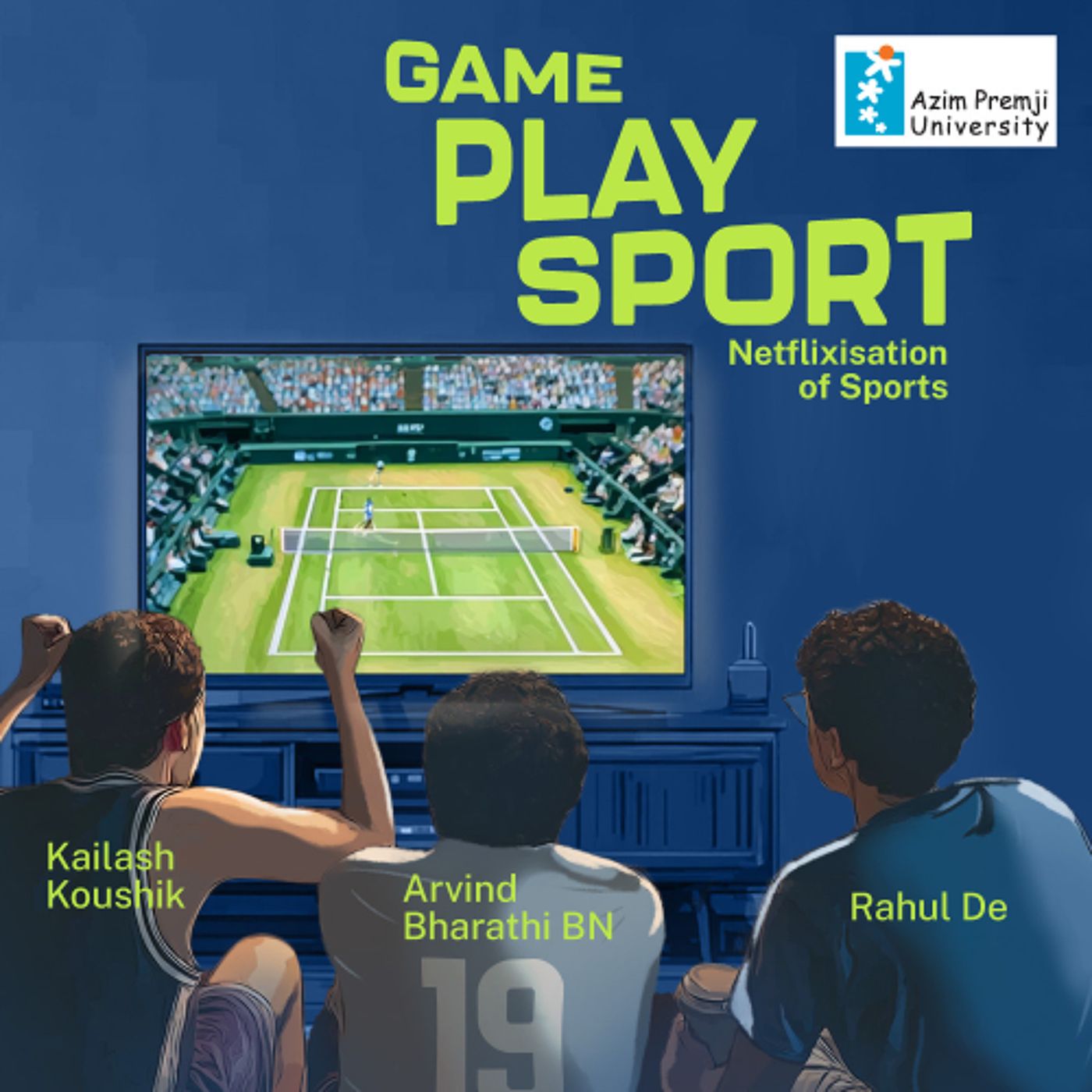
In this episode of Game Play Sport, we dive into how OTT platforms have changed the way Indians experience sports — shifting the focus from just scores and stats to drama, storylines, and spectacle. Sports Are the New Reality TV — And OTT Made It Happen. From behind-the-scenes docuseries to slow-motion replays and cinematic narratives, sport today feels more like a show than ever before. We explore why streaming is not just changing how we watch sports, but why we watch it in the first place. Our hosts also talk about: Why Sports Now Feel Like Reality TV The Netflix Effect: How Stre...
Sundar Raj’s Theatre Roots at ರವೀಂದ್ರ ಕಲಾಕ್ಷೇತ್ರ | A Bengaluru Legacy | Noorakke Nooru Karnataka
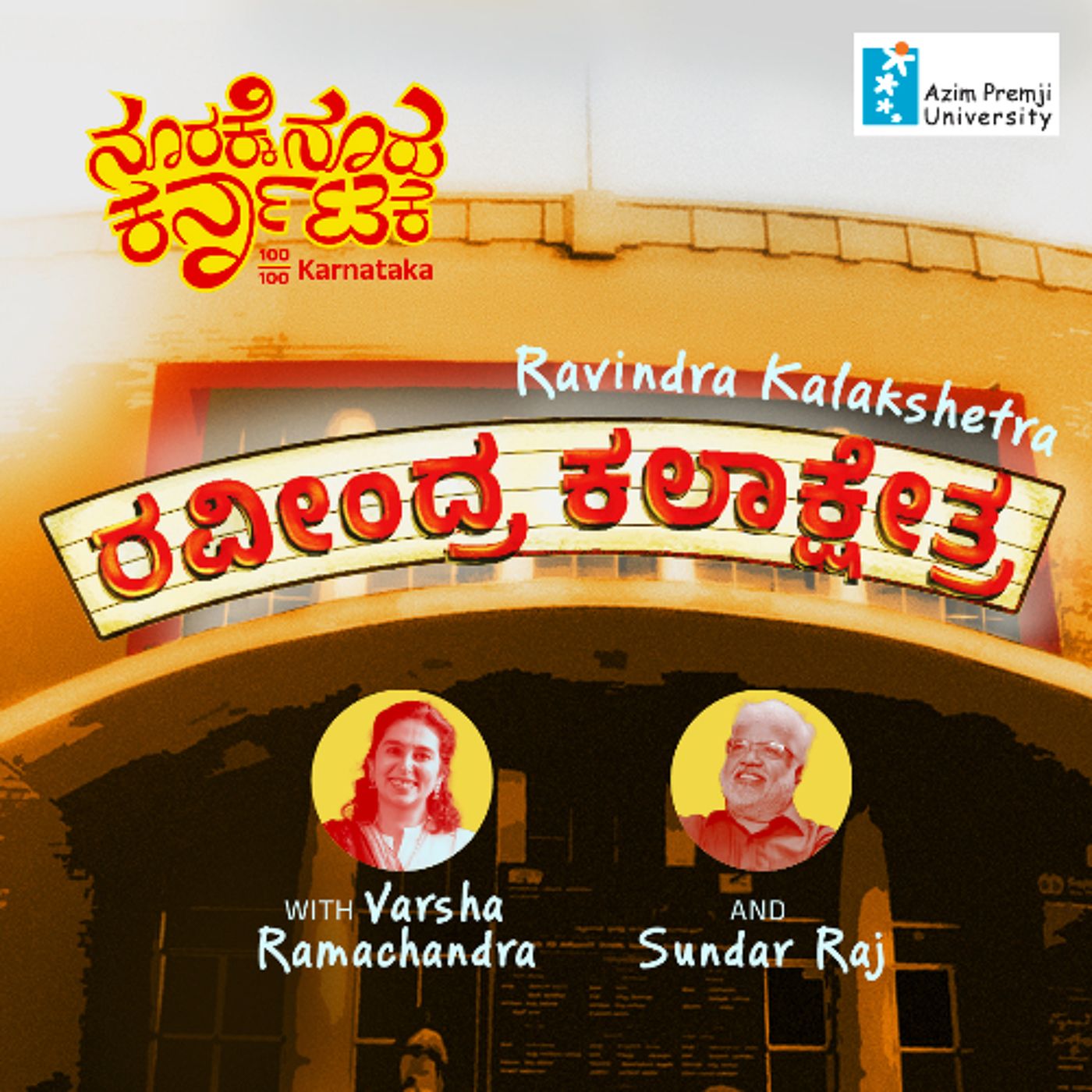
In this episode of Noorakke Nooru Karnataka, we sit down with veteran Kannada actor Sundar Raj to explore the cultural legacy of Ravindra Kalakshetra — Bengaluru’s iconic theatre auditorium, only on Radio Azim Premji University. Like many of his generation, Sundar Raj’s journey into cinema began here, under the stage lights of Kalakshetra. For him and countless others, this wasn’t just a venue — it was a launchpad, a learning ground, and a vital chapter in the history of Kannada performing arts.
Ambassador : King of the Road, Ghost of the State
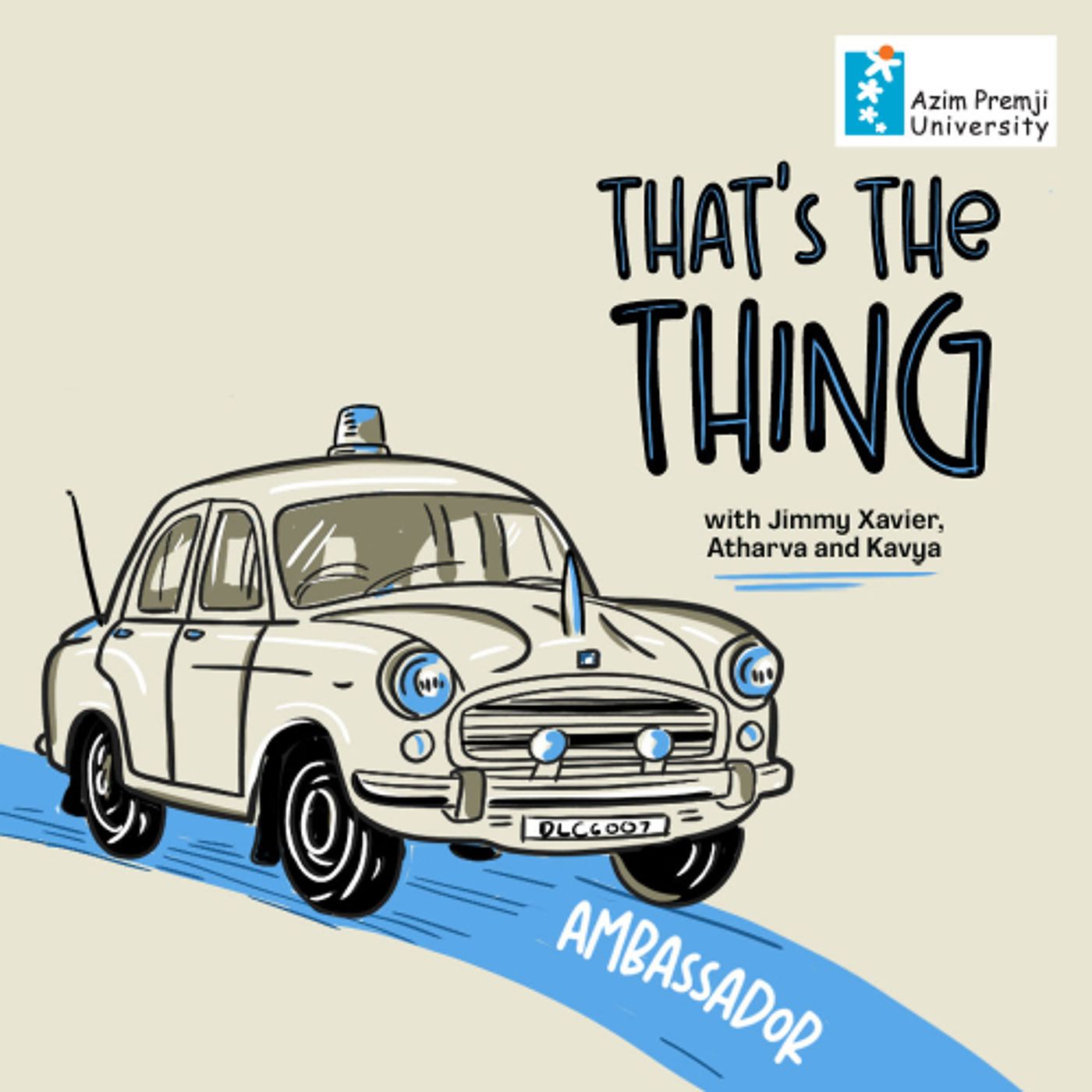
In this episode of That’s the Thing, Jimmy, Kavya, and Atharva slide into the wide, unyielding backseat of an Ambassador—the car that defined Indian power, politics, and pothole strategy for over five decades. It was a diesel beast. A monocoque marvel. And a boot space that no hatchback today can touch. Modelled after the British Morris Oxford, the Ambassador became the official ride for every babu, neta, and dignitary that mattered. By the 1960s, it wasn’t just on the road—it was the road. Jawaharlal Nehru may have swapped it out for a Cadillac when foreign guests arrived...
Fan Anger in Sports: Why Do Emotions Run So High? | Game Play Sport Episode 3
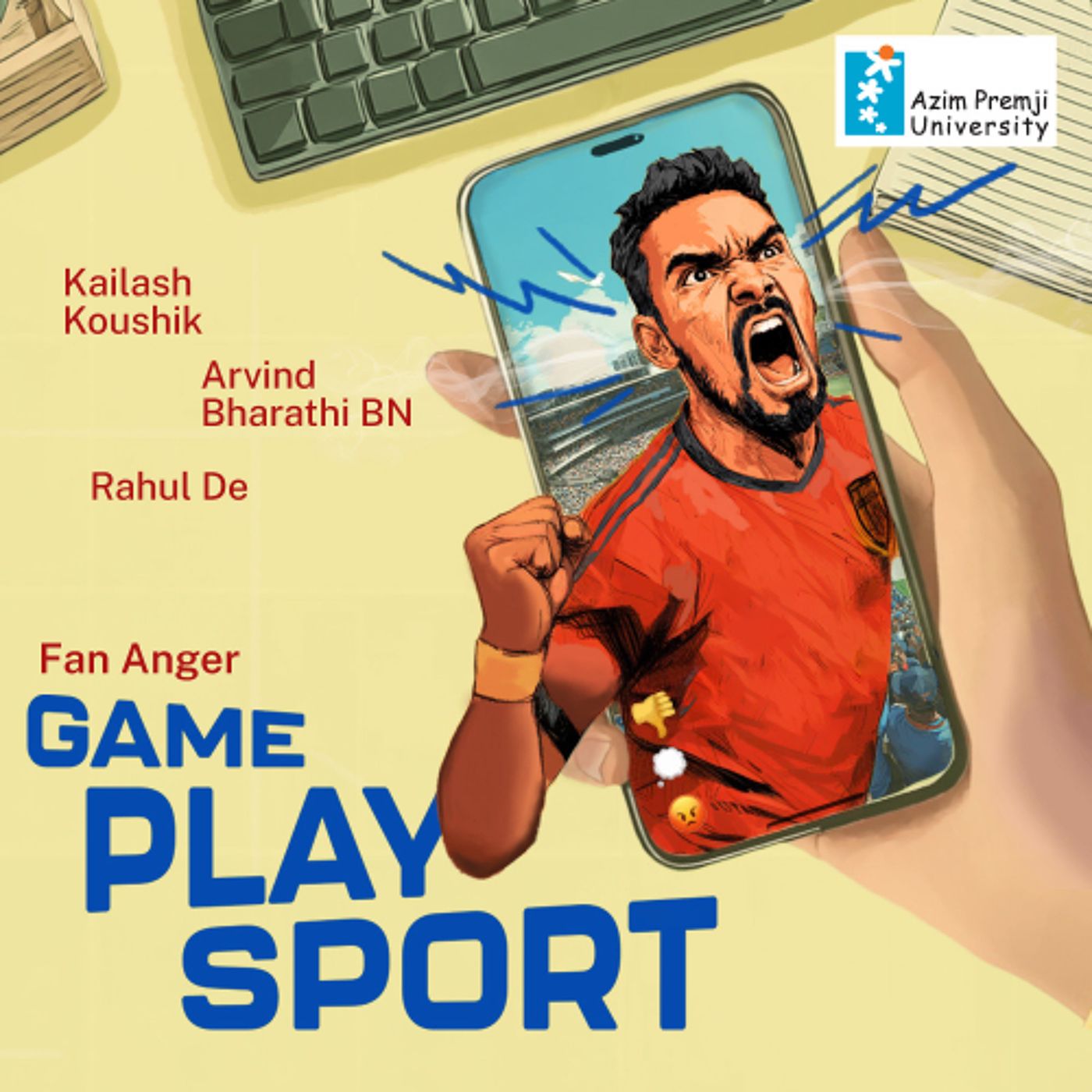
In this episode of Game Play Sport, Rahul De, Kailash Kaushik, and Arvind Bharathi BN dive into fan anger in sports and the emotional core of Indian sports fandom. From Angry Rant Man’s YouTube meltdowns to the infamous 1996 Eden Gardens riot, our relationship with sport often crosses the line from passion to rage. In order to unpack this, we speak with Ryan Thomas Philips, a computational neuroscientist and Assistant Professor at Azim Premji University about how fans closely tie their identity and self-worth to their teams. They also talk about: What Goes On In Your Brain During Tense Sporting Mo...
Indian Fitness Influencer On Fitness Revolution, Gym Culture & Future of Gyms | Shwetambari Shetty
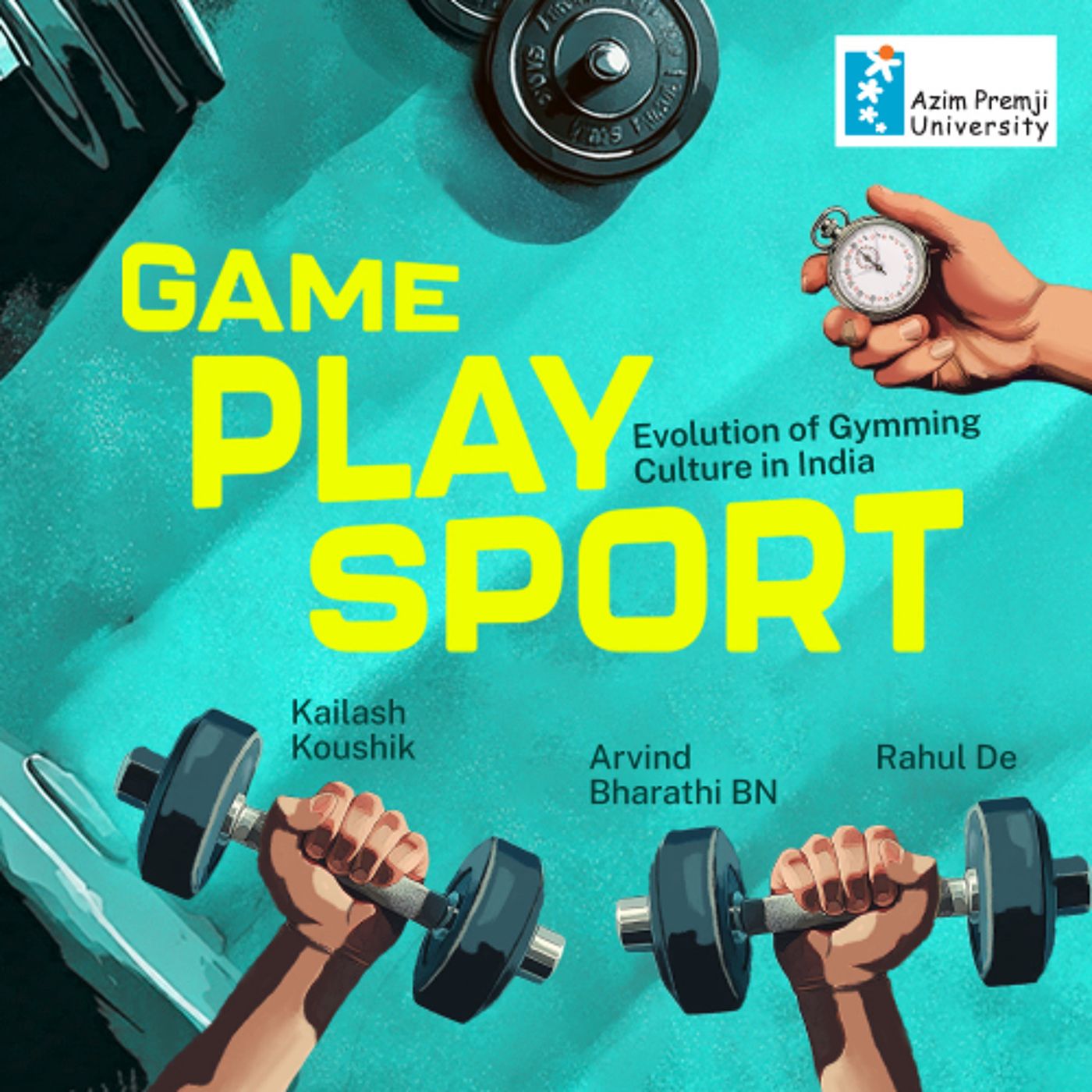
In this bonus episode of Game Play Sport, we take a closer look at gym culture—who it was built for, and how it has changed. Our conversation with Shwetambari Shetty, founder of My Third Space, traces how fitness spaces that once felt intimidating and exclusionary—especially for women—have slowly evolved into more welcoming environments. She reflects on how strength training was long seen as “not for women,” how both men and women were unsure of how to navigate gym equipment, and why group classes played a key role in making people feel more comfortable and connected. This episode is not jus...
Evolution of India's Gym Culture | Game Play Sports Episode 2

In this episode of Game Play Sport, we explore how India’s gym culture has shifted—from basement weight rooms and bodybuilding ideals to wellness-focused routines and group classes. Shwetambari Shetty, founder of Third Space, joins the conversation to reflect on why gyms have felt intimidating for many, and how fitness trends are shaping access, comfort, and community today. Watch this incredibly thought-provoking conversation about how the gym culture in India has evolved and where it will be in 10 years… Tune in NOW!
Pustakadinda Pardega| ಪುಸ್ತಕದಿಂದ ಪರದೆಗೆ
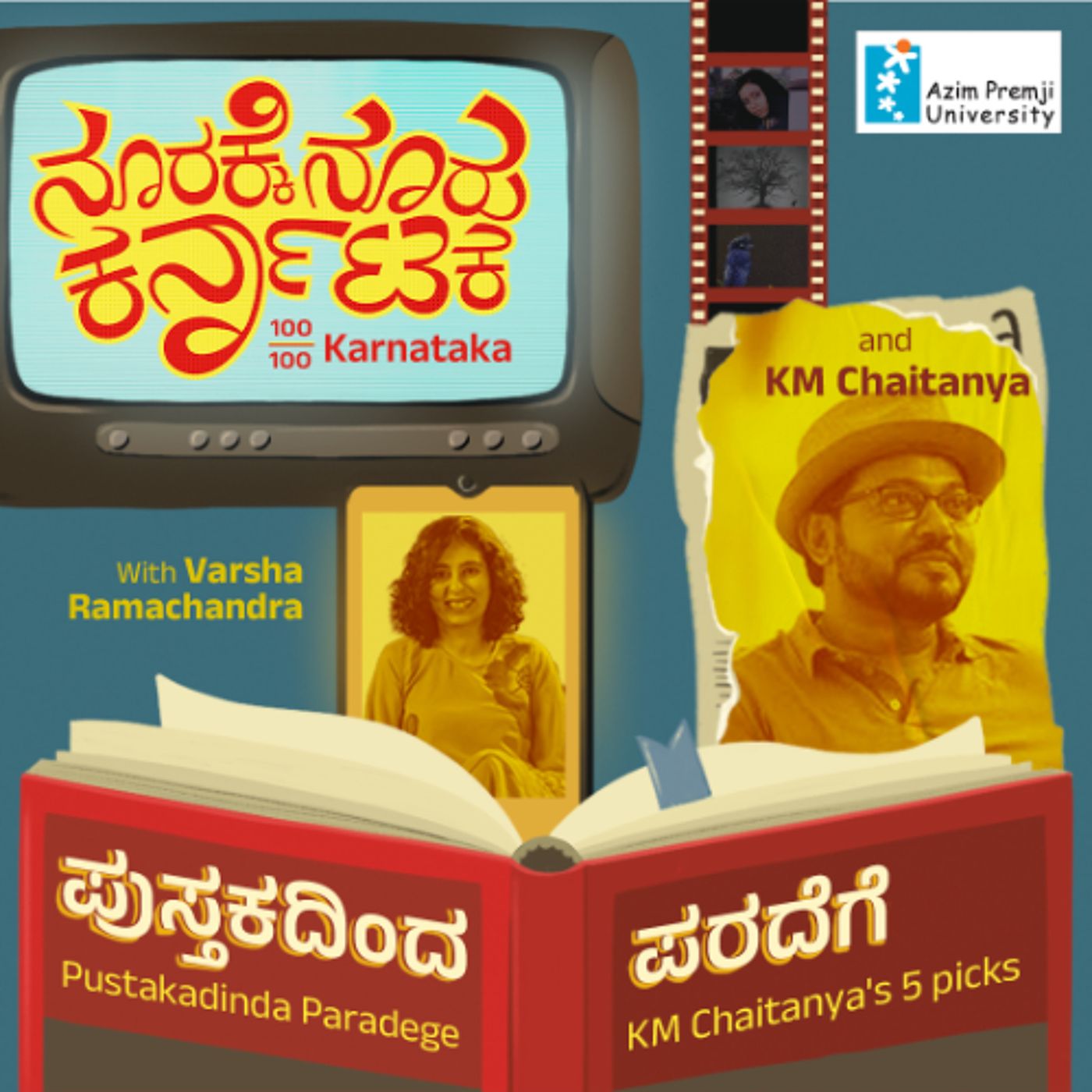
Pustakadinda Pardega| ಪುಸ್ತಕದಿಂದ ಪರದೆಗೆ by Radio Azim Premji University
Ghazal| That's The Thing| Radio Azim Premji University
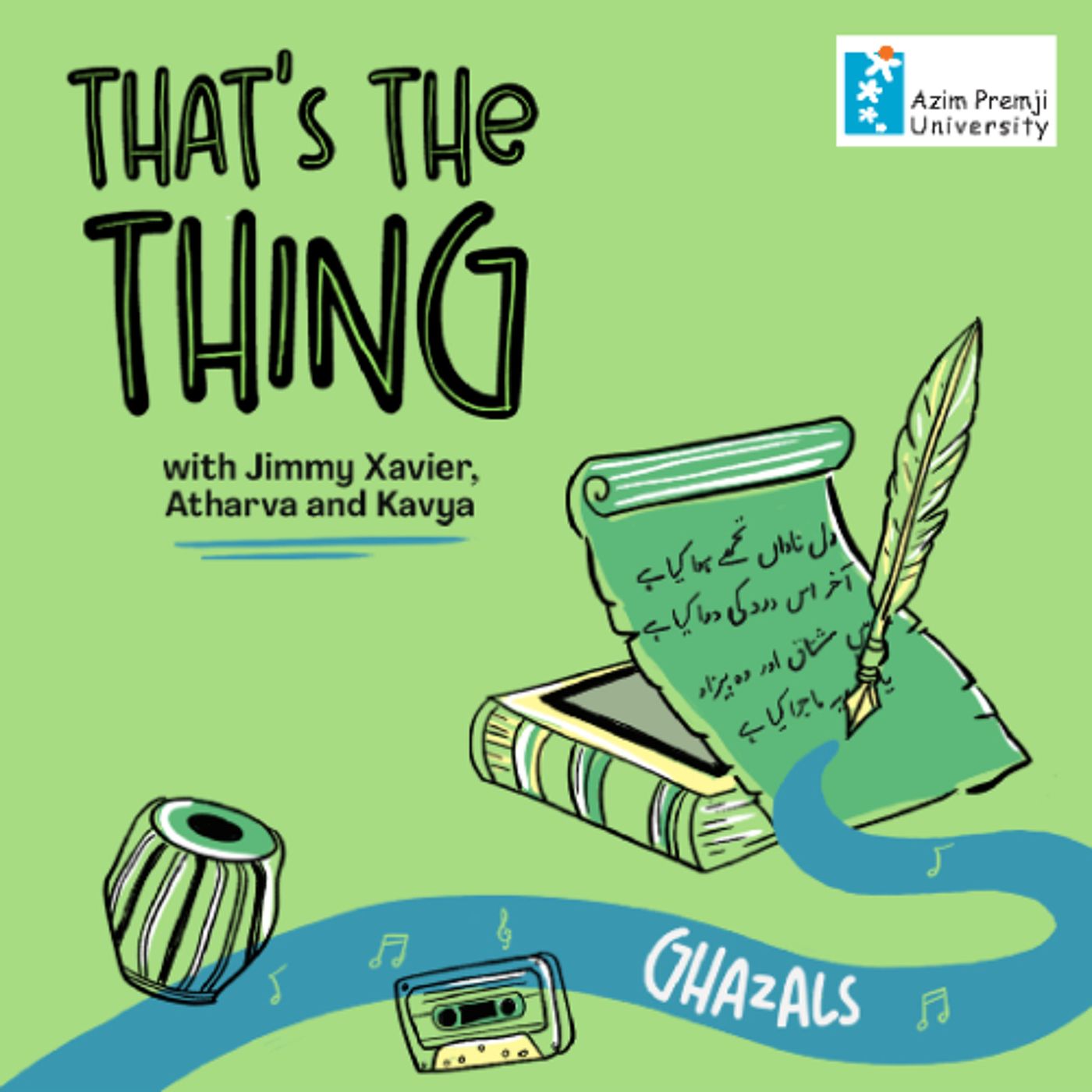
Ghazal| That's The Thing| Radio Azim Premji University by Radio Azim Premji University
Game Play Sport| Episode 1| Game Play Sport with Rahul, Arvind, and Kailash
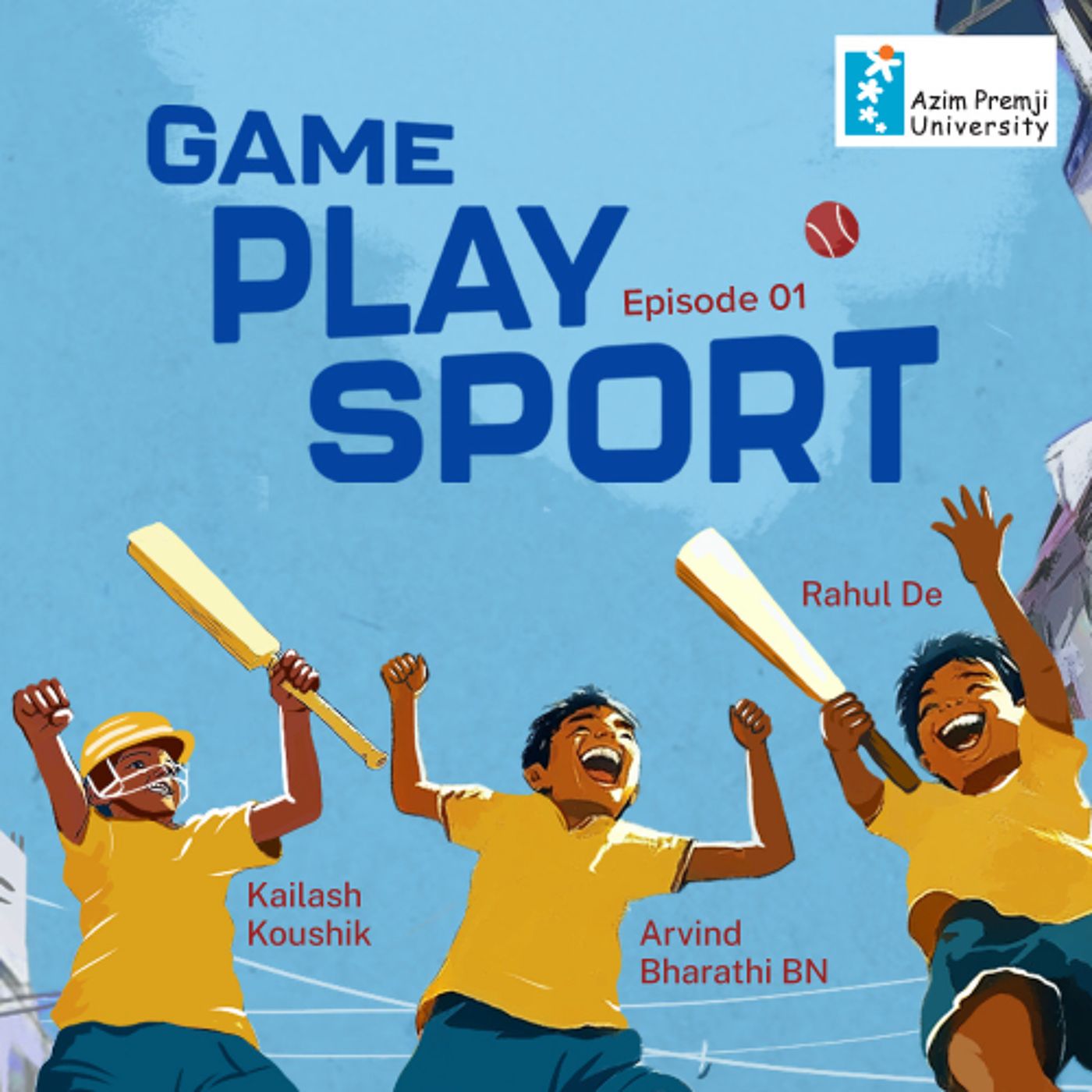
Game Play Sport| Episode 1| Game Play Sport with Rahul, Arvind, and Kailash by Radio Azim Premji University
That's The Thing| Ep 3 Snakes and Ladders| Radio Azim Premji University
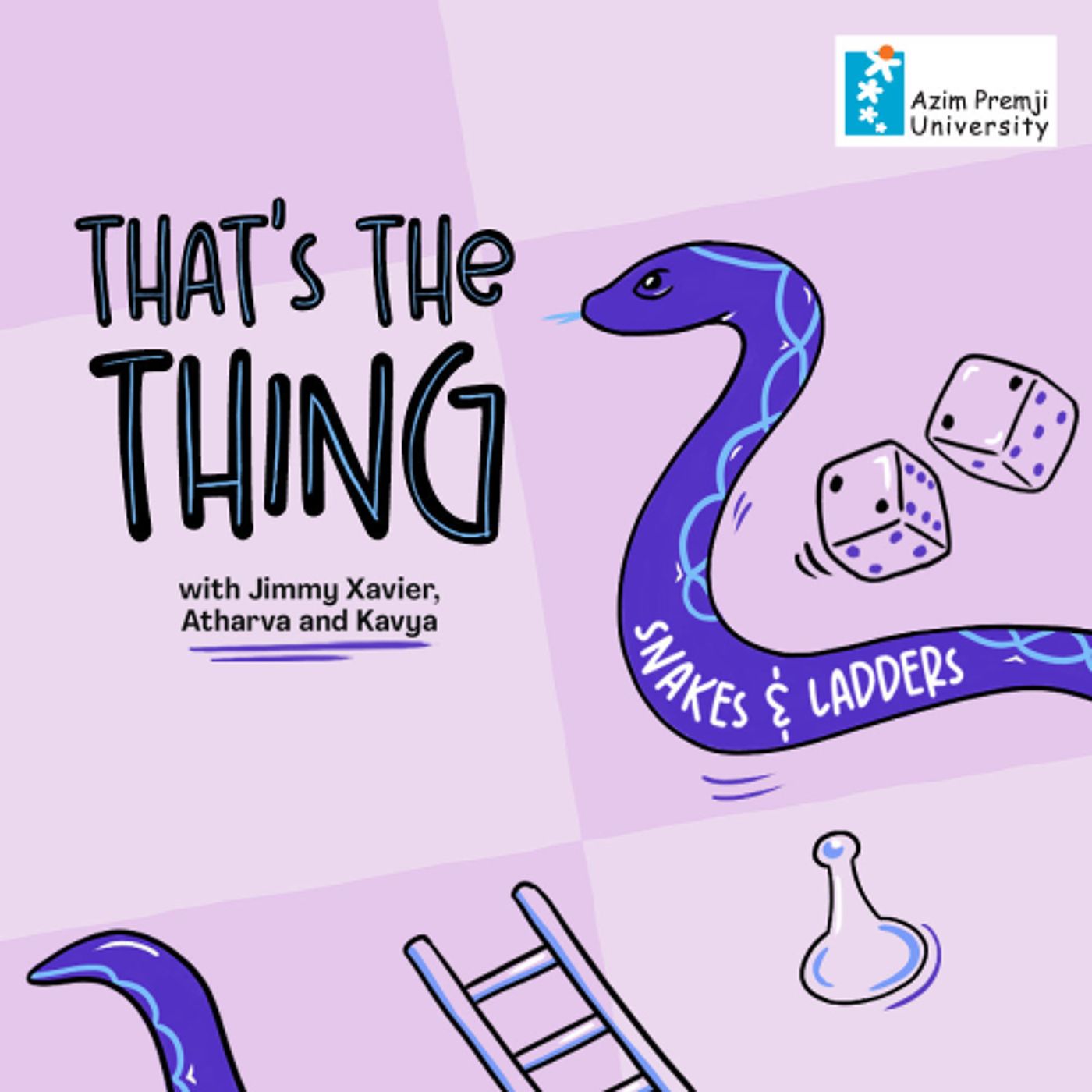
You’ve rolled the dice, dodged snakes, and climbed ladders — but did you know Snakes and Ladders began as a lesson in morality? This episode traces the game’s roots to 13th-century Maharashtra, where Sant Jnaneshwar designed Moksha Patam to teach virtues and warn against vices. Each square held a symbolic meaning — generosity, faith, and humility led you upward, while pride and drunkenness pulled you down. The ultimate goal? Reaching Vaikuntha, the abode of Vishnu. The hosts dive into family memories, Ekadashi traditions, and the cultural evolution of the game — from Jnaneshwar’s Hindu board with 72 squares to Jain versions with 84. Sp...
ಎಂದೆಂದಿಗೂ ತೇಜಸ್ವಿ | Tejaswi Forever...._ Noorakke Nooru Karnataka| Episode 8
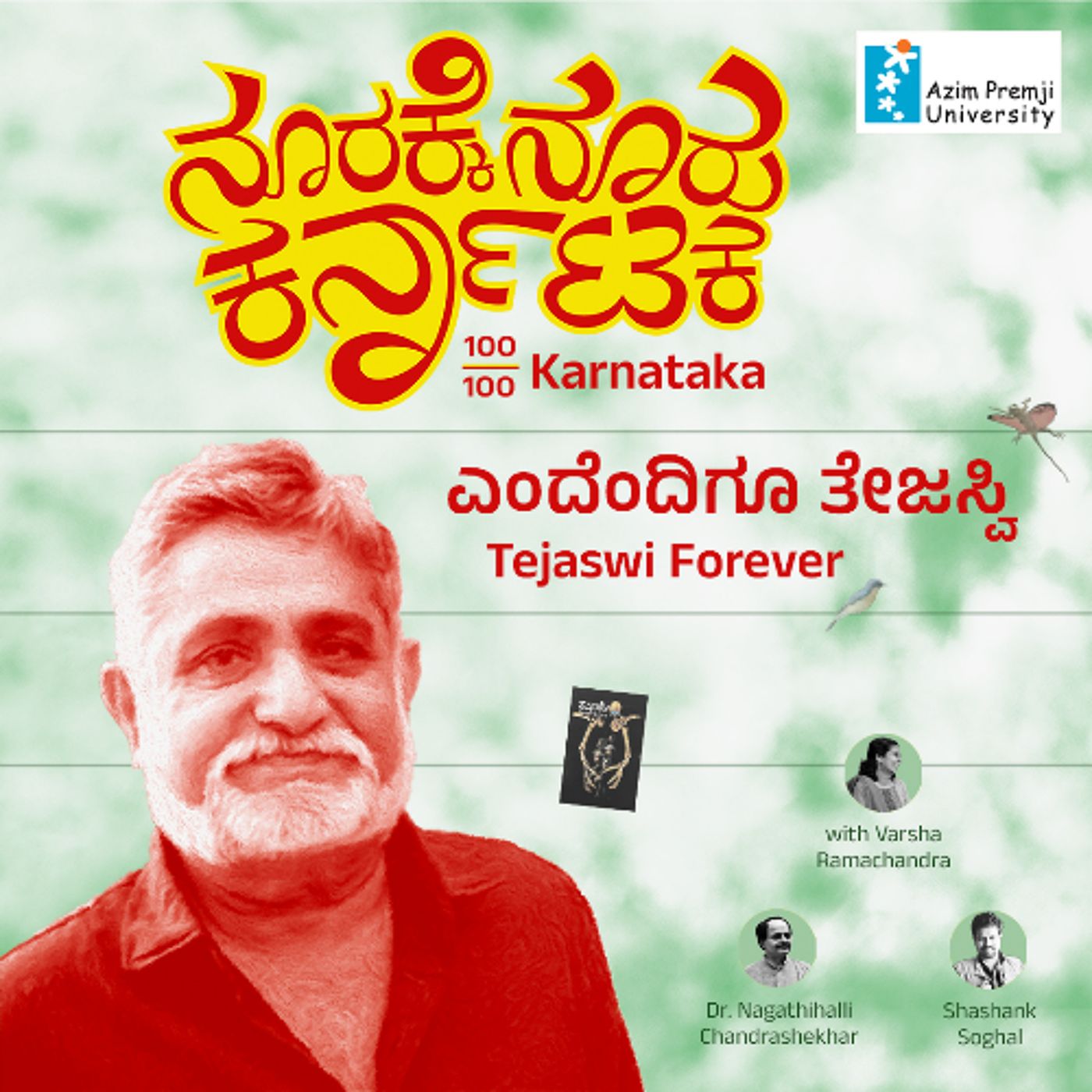
ಎಂದೆಂದಿಗೂ ತೇಜಸ್ವಿ | Tejaswi Forever...._ Noorakke Nooru Karnataka| Episode 8 by Radio Azim Premji University
That's The Thing| Ep 2 Chai| Radio Azim Premji University
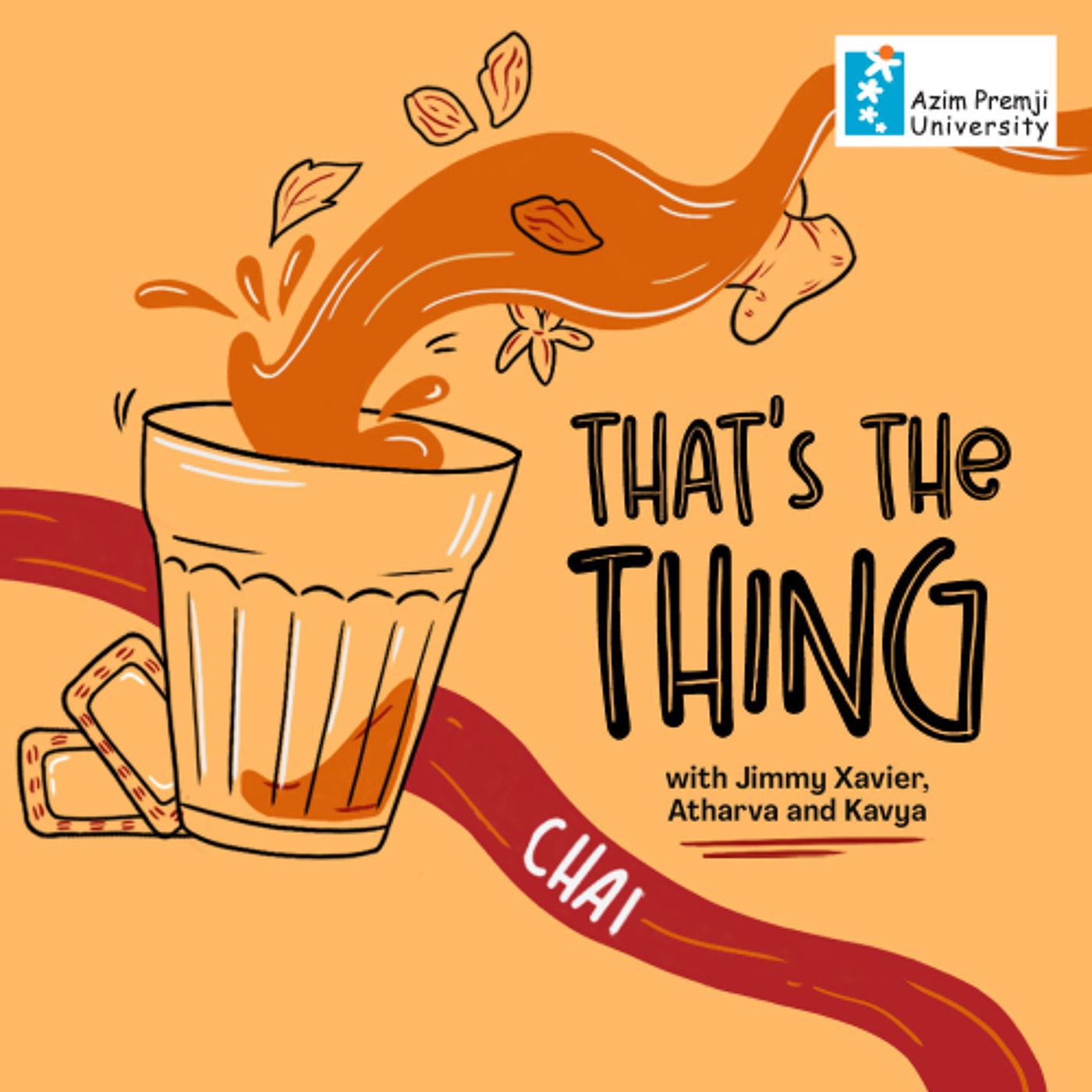
It’s scalding hot, sweet, kadak — and proudly Indian. But can India really lay claim to chai? Hosts Jimmy, Kavya, and Atharva trace the journey of tea from the jungles near the Indo-China border to the boiling kettles of Indian railway stations. From its ancient medicinal uses in China to the British ‘discovery’ of wild tea bushes in Assam, this episode brews up a storm of fun facts, folk songs, and forgotten histories. We learn about Camellia sinensis, the dark legacy of British tea plantations and indentured labour, and the surprising role of Buddhist monks and Taoist philosophers in tea’s rise. Th...
That's The Thing| Ep 1 Auto Rickshaw| Radio Azim Premji University
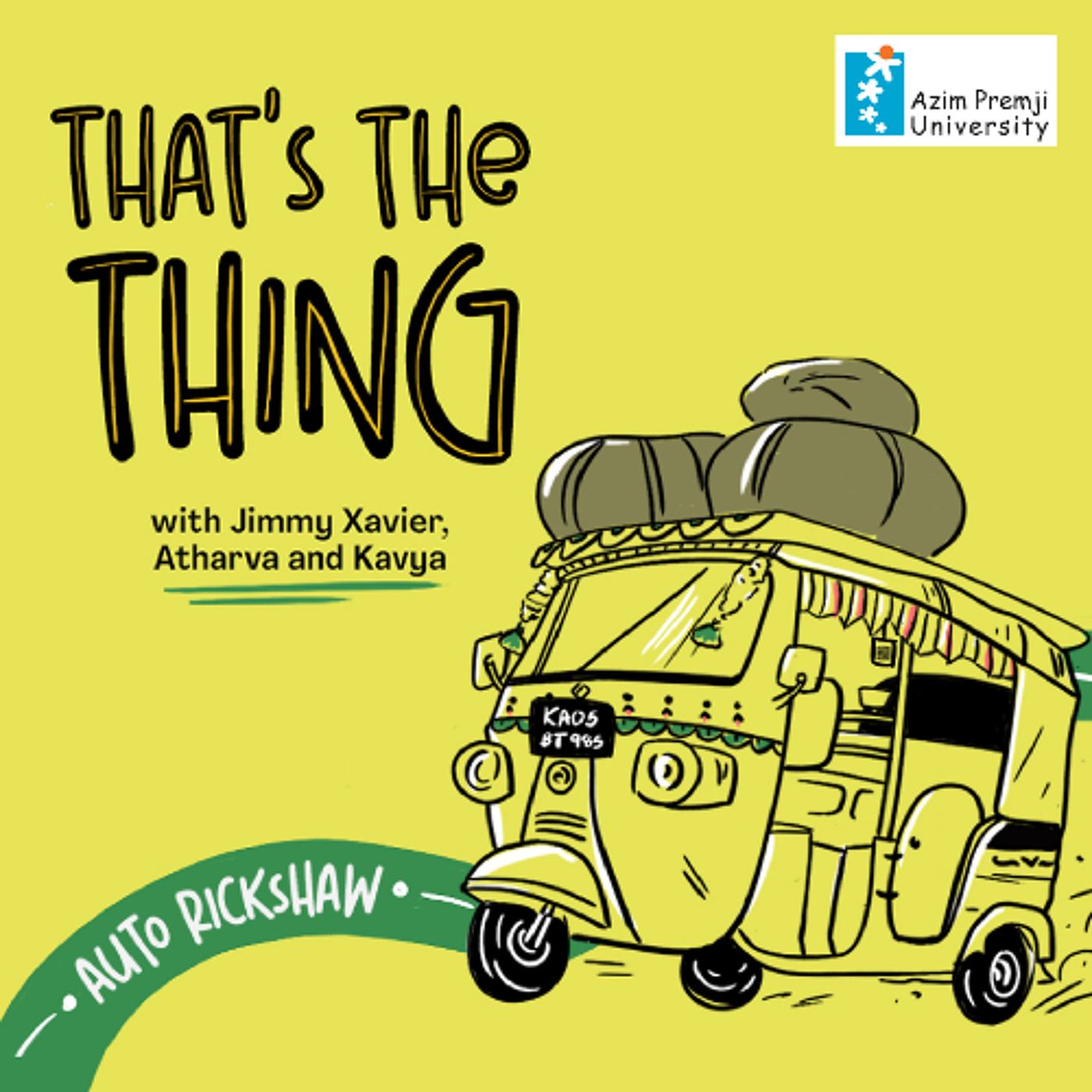
Is the auto rickshaw really Indian? Or did it tuk-tuk its way into our hearts from faraway lands? In the debut episode of That’s The Thing, hosts Jimmy Xavier, Kavya Srinivasan, and Atharva Karandikar go on a rollicking ride through the action-packed history of India’s most iconic three-wheeler. From 19th-century Japan’s human-pulled jinrikshas, to Italy’s buzzing Piaggio Ape, to Bajaj Auto’s desi makeover, they unearth the quirky global roots of the autorickshaw. Discover how freedom fighters introduced the auto to India post-Independence, how e-rickshaws are reshaping public transport, and why we might finally have the ride-haili...
Auto Rickshaw | That’s The Thing Ep 1 | Radio Azim Premji University
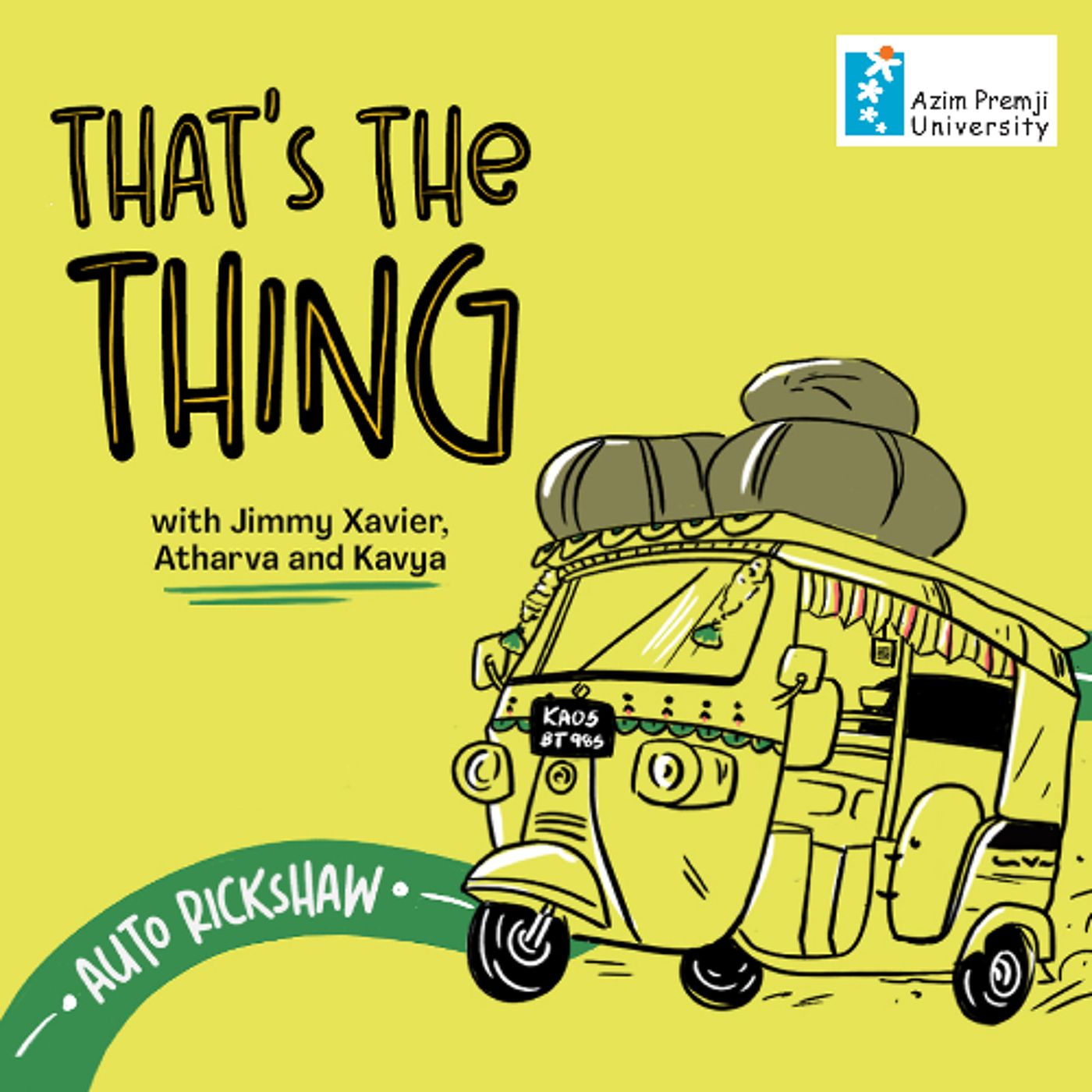
Is the auto rickshaw really Indian? Or did it tuk-tuk its way into our hearts from faraway lands? In the debut episode of That’s The Thing, hosts Jimmy Xavier, Kavya Srinivasan, and Atharva Karandikar go on a rollicking ride through the action-packed history of India’s most iconic three-wheeler. From 19th-century Japan’s human-pulled jinrikshas, to Italy’s buzzing Piaggio Ape, to Bajaj Auto’s desi makeover, they unearth the quirky global roots of the autorickshaw. Discover how freedom fighters introduced the auto to India post-Independence, how e-rickshaws are reshaping public transport, and why we might finally have the ride-haili...
That’s The Thing - Radio Azim Premji University (Show Trailer)

You thought it was Indian? That’s the thing — it might not be! That’s The Thing is a breezy, curiosity-powered podcast from Radio Azim Premji University that takes a closer look at everyday things we proudly call desi. But are they really? Hosts Jimmy Xavier, Kavya Srinivasan, and Atharva Karandikar dive into surprising backstories, spicy trivia, and oddball records behind familiar Indian objects and ideas. Expect playful banter, sharp insights, and the occasional song as the trio plays historical detective, sifting through origin stories and modern myths. It’s history without the homework — a weekly dose of wonder for the endles...
Hello Samvidhaan! | Samvidhaani Pitaara with Vineet KKN Panchhi | Radio Azim Premji University
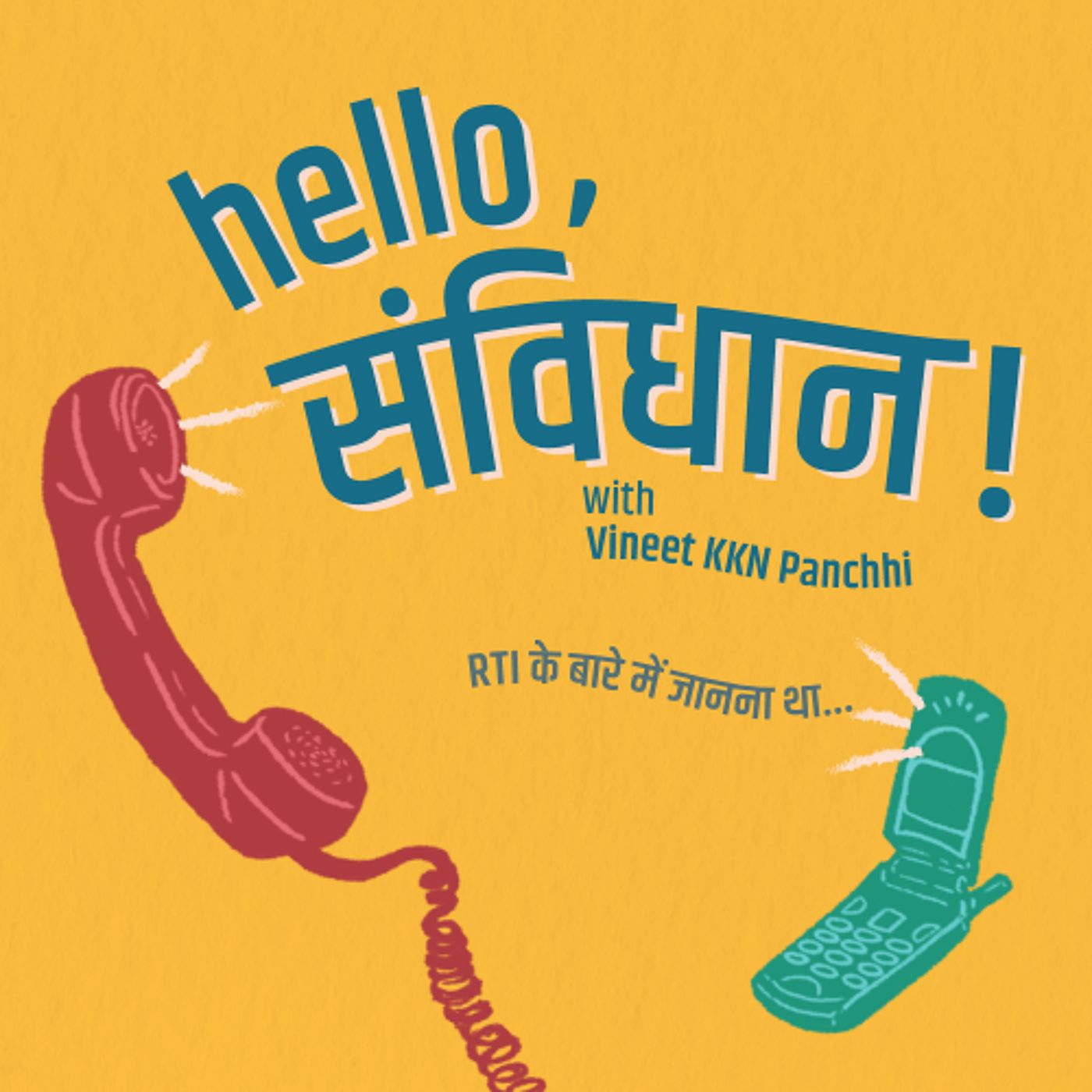
In our daily lives, we often encounter situations where our rights as citizens intersect—or sometimes clash—with the law. While it’s one thing to study the Constitution article by article, it’s quite another to understand the nuances of when and how to exercise those rights. What if you had the chance to call in and consult a constitutional expert? Would that make you more aware of your rights—and more empowered as a citizen? On the occasion of Babasaheb Ambedkar’s birthday, we bring you a special episode of Samvidhaani Pitaara that promotes civic awareness. Hello Samvidhaan is a dramati...
Bengaluru Karaga | ಬೆಂಗಳೂರು ಕರಗ
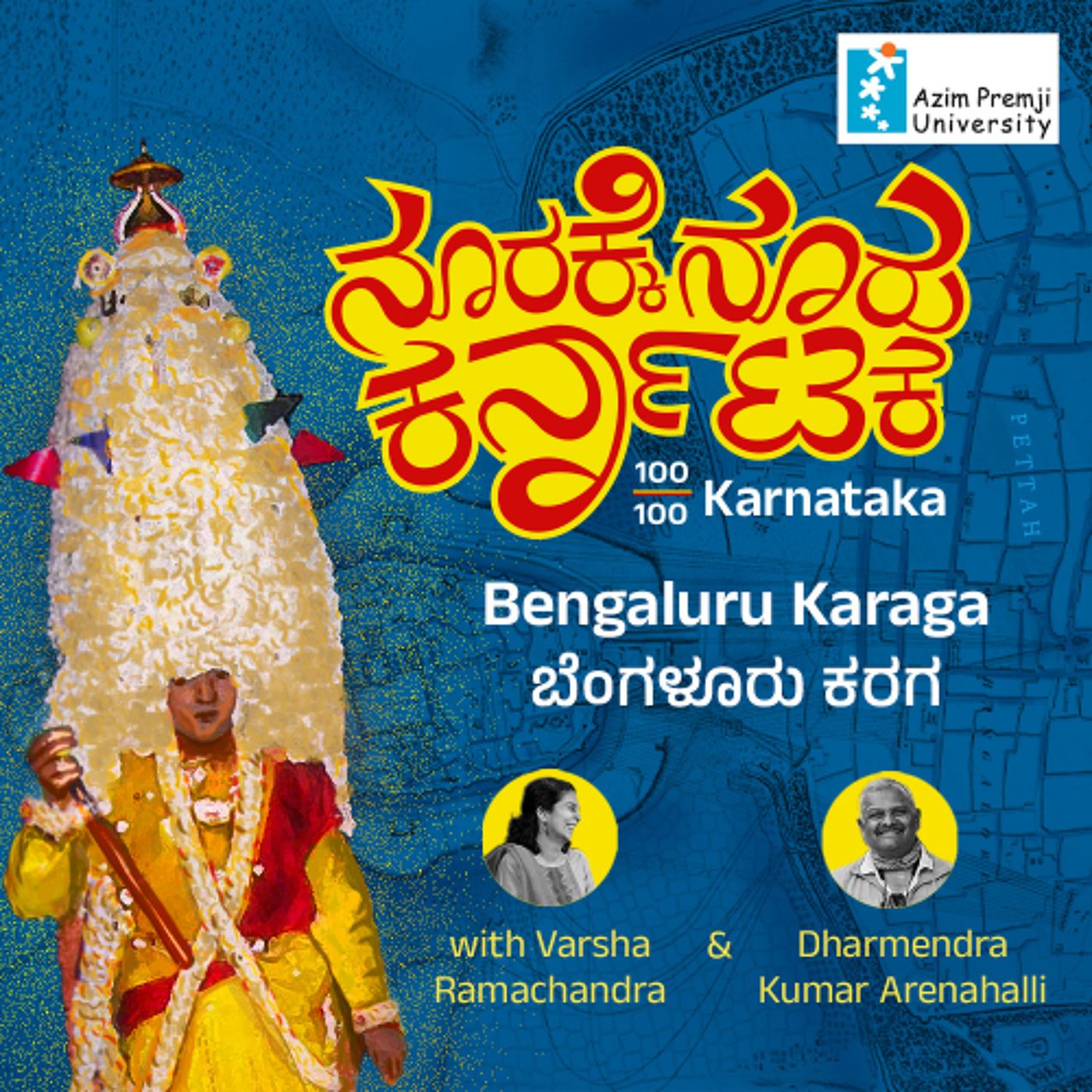
Bengaluru Karaga | ಬೆಂಗಳೂರು ಕರಗ In this special episode of Noorakke Nooru Karnataka, we step into the heart of one of Bengaluru’s oldest and most vibrant traditions—the Bengaluru Karaga. New host Varsha Ramachandra is joined by historian and storyteller Dharmendra Kumar Arenahalli, who has spent years documenting this unique festival. Held in the lunar month of Chaitra, the Karaga is a spectacular night-time procession through the city’s historic Pete area. At its centre is a flower-adorned Karaga bearer, who channels the spirit of Draupadi, the warrior-goddess from the Mahabharata. We explore how the Thigala community, once caretakers of Bengaluru’s lakes and temple gardens, cont...
Unboxed - The Lightbulb In India with Sharmadip Basu and Proteep Mallik
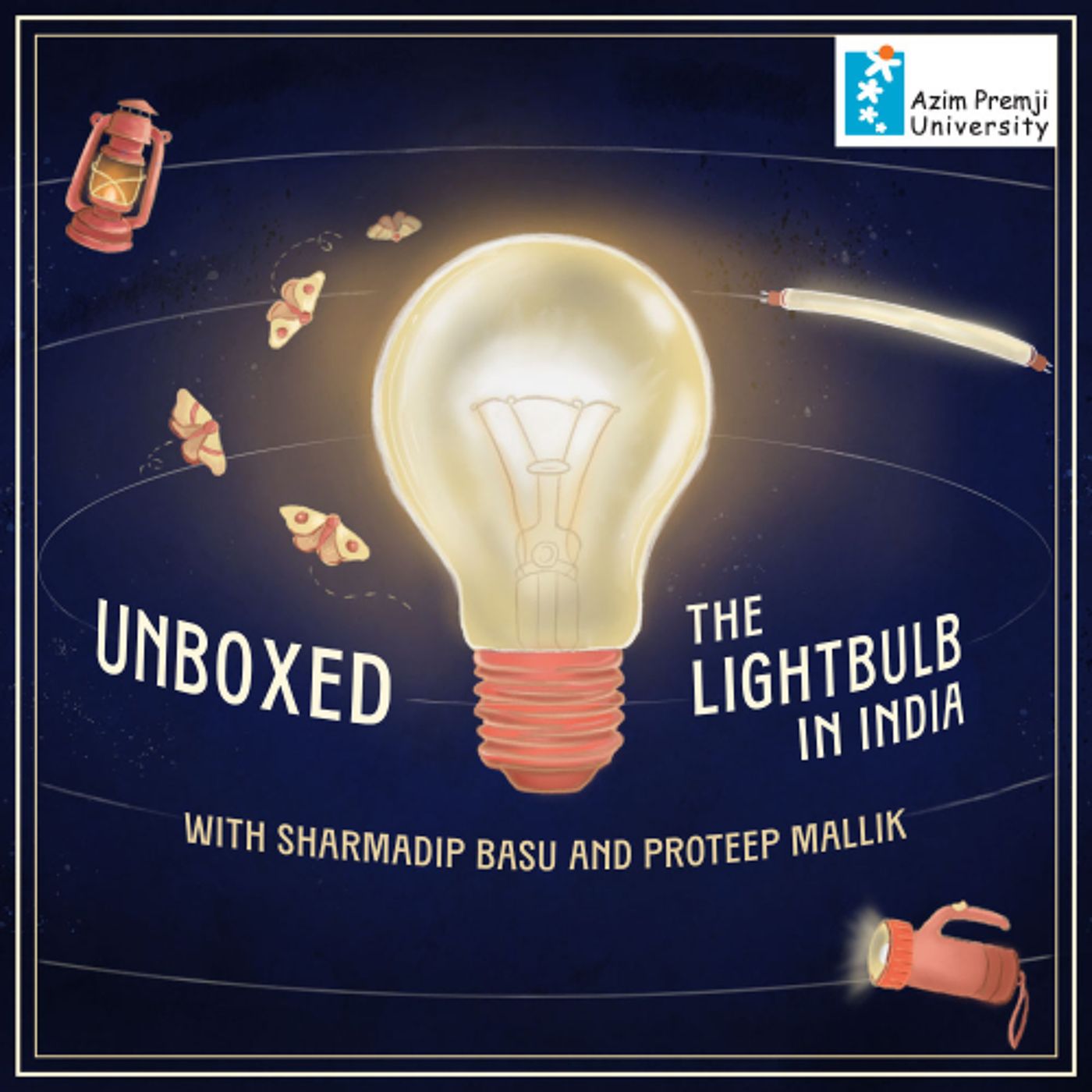
In Unboxed — The Lightbulb in India, Sharmadip Basu and Proteep Mallik explore the history, science, and legacy of electric lighting in India, joined by guests Antara Das and Sunandan K.N. The electric lightbulb transformed human life, replacing natural cycles of light and darkness and extending human productivity beyond the workday. Early innovations such as Humphry Davy’s arc light (1802) and Warren de la Rue’s platinum filament bulb (1840) were impractical. In 1879, Thomas Edison and Joseph Swan developed longer-lasting carbon filament bulbs. By 1906, tungsten filaments became the standard, and later, argon gas was introduced to extend bulb life. Electric lighting arrive...
समुदाय की आवाज़ें | Voices from the Community | एप ५ लिखे जो ख़त मुझे मयूर त्रिवेदी के साथ
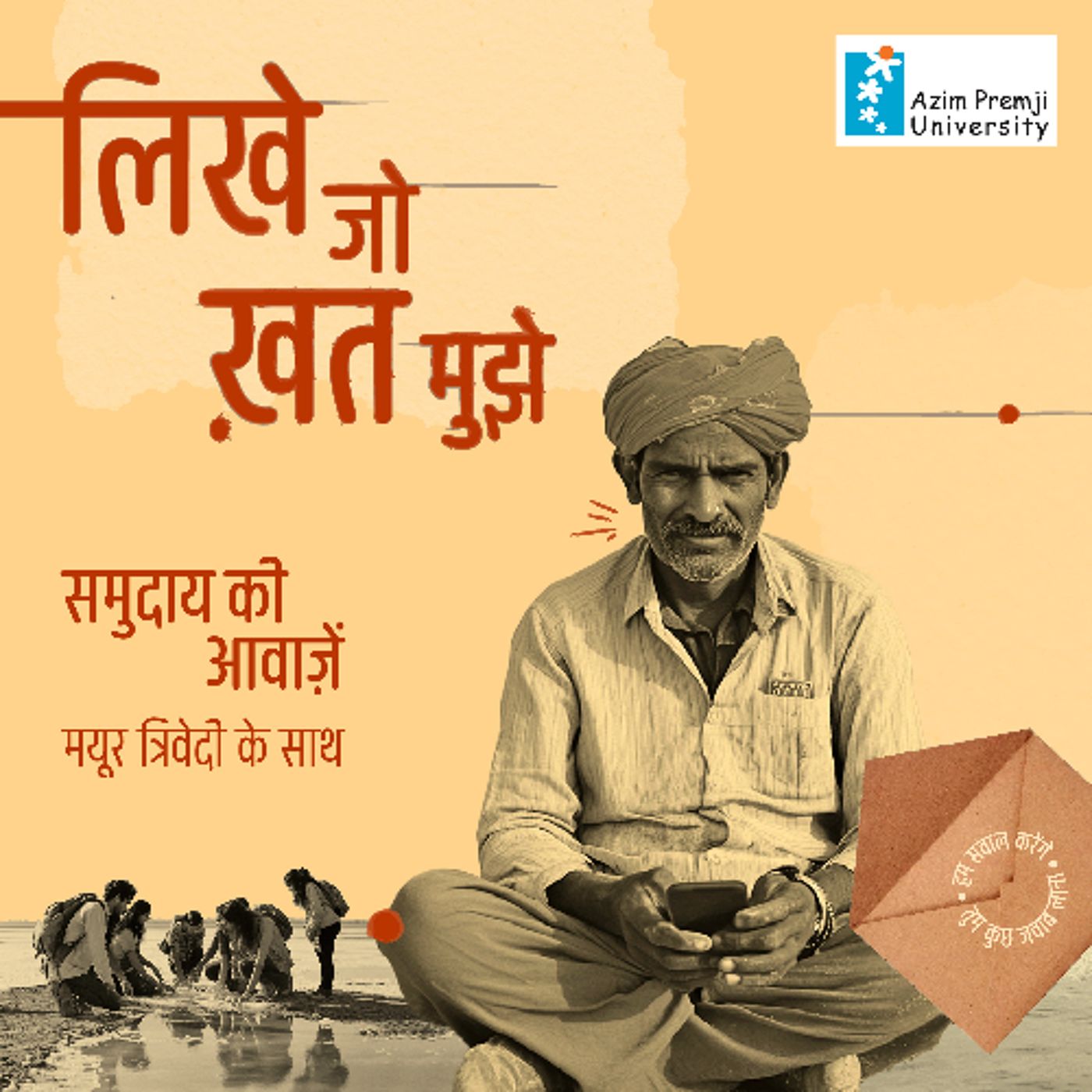
समुदाय की आवाज़ें | Voices from the Community आज का पत्र है पश्चिमी भारत के लिटल रण ऑफ कच्छ से। शहर और गाँव से मिलों दूर ये एक ऐसी जगह हैं जहा अगारिया समुदाय के लोग नमक की खेती करते हैं। हमारे देश का आधे से ज्यादा नमक यही से इनकी मेहनत से ही आता हैं। यह पत्र विमुक्त जनजाति के एक बुजुर्ग अगारिया का हैं जो मुजे पिछले दस सालों से जानते हैं। मैं एक स्टूडेंट के रूप मे उनको मिला था और बाद मे अपने स्टूडेंट्स को फील्ड के अनुभव के लिए उनके पास ले जाया करता था। इस खत के जरिए वो मेरी और उनकी जिंदगी मे इन सालों मे आए बदलाव की बात कर रहे हैं। हमारे संपर्क के एकतरफ़े रुख से अपनी नाराज़गी जताकर वो इस खत मे उन सभी लोगों से सवाल कर रहे हैं जो समय-समय पर उनके पास जाकर उनसे सवाल पूछते रहे, उनकी कहानिया सुनते रहे, और उनके जीवन के आंकड़ों को लिखते रहे, लेकिन जो कभी वापस नहीं आए – न ही उनकी खबर पूछने आए या ना ही बदलाव की कोई खबर लेकर आए । आइए, सुनते हैं डांट, दर्द, और चाहभरी उनकी दास्तान जिनकी मेहनत से बना नमक हमारे खाने मे स्वाद लाता हैं । - मयूर त्रिवेदी _ In this powerful episode, an Agariya elder from the Little Rann of Kutch shares his frustration with researchers and students who visit his community, collect stories, and then disappear—never returning with news of change. The Agariyas, who produce over half of India’s salt, continue to toil in harsh conditions, earning mere paise per kilo while facing new challenges: government restrictions on their ancestral lands and climate shifts affecting salt production. Through immersive storytelling, the elder’s letter demands accountability, questioning why those who study them never stand by them in times of crisis. “We don’t want to be mere statistics or stories anymore,” he writes. His plea challenges listeners to rethink their role—not just as observers, but as allies in the fight for justice. This episode asks a crucial question: How long will marginalised communities remain subjects of study rather than active participants in shaping their own futures? CREDITS Akshay Ramuhalli, Bijoy Venugopal, Bruce Lee Mani, Gorveck Thokchom, Narayan Krishnaswamy, Prashant Vasudevan, Sananda Dasgupta, Seema Seth, Shraddha Gautam, Supriya Joshi, and Velu Shankar ACKNOWLEDGEMENTS Agariya elder voiced by Sanjay Galsar
अनकही आवाज़ें | Unspoken Voices | Likhe Jo Khat Mujhe with Mayur Trivedi
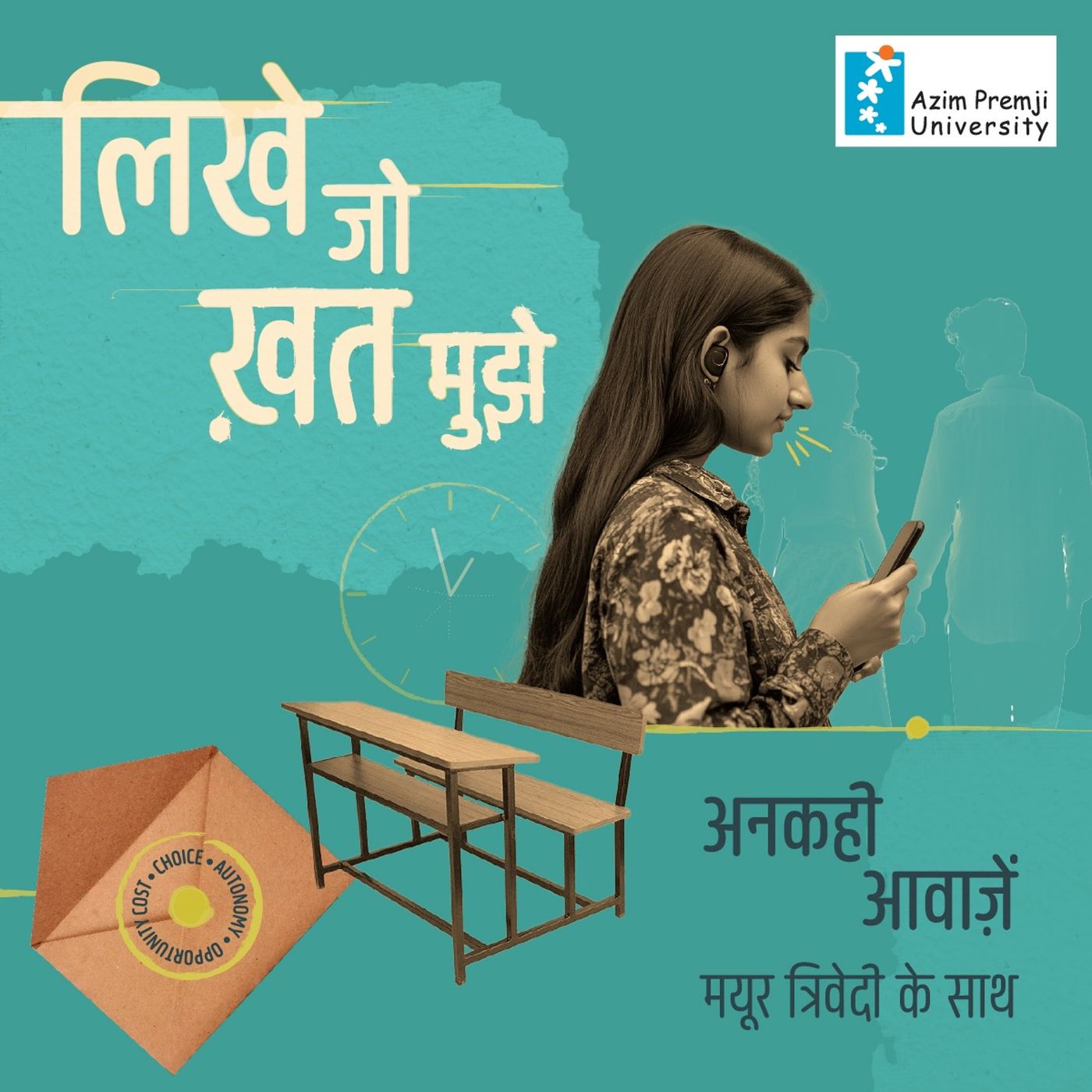
प्रोफेसर होने के नाते अक्सर युवा, विशेष रूप से '20’s' के लोगों से मेरी गहरी बातचीत होती रहती है। ज्यादातर बच्चे पास में ही चले जाते हैं, कुछ लंबे अरस तक टच में रहते हैं और समय-समय पर जिंदगी के सबक भी शेयर करते हैं। इन एक्स बच्चों की बातें मुझे सबसे ज्यादा आकर्षित करती हैं क्योंकि इनमे मार्क्स, असाइनमेंट और पाठ्यक्रम से ऊपर जीवन की सच्चाई सबसे ज्यादा होती हैं। ऐसी ही एक खास 'लास्ट बेंचर' से आज मुझे एक कहानी मिलती है। दस साल पहले जब वो मेरी दुकान थी तब सब्जेक्ट्स में रुचि नहीं थी। हा, मगर हमारे बीच बातें बहुत होती रहती थीं। आज वो बता रहे हैं पढ़ाई के समय किताबी लीज वाले उन कॉन्सेप्ट्स ने कैसे अपनी खुद की जिंदगी में मायने पाए। 'अनकही आवाजें' में सुनिए शादी और परिवार को लेकर एक युवा, स्वतंत्र, जिम्मेदार महिला की ये कहानी, वही की प्यारी। - मयूर त्रिवेदी — In this deeply personal episode of Likhe Jo Khat Mujhe with Mayur Trivedi, titled Ankahi Awaazein (Unspoken Voices), a former student, Shreya, reconnects with her professor after a decade, sharing a heartfelt reflection on how the lessons from his demography and health economics classes have unexpectedly shaped her understanding of life. Through a recorded letter, she narrates her quiet struggle with infertility, the weight of societal expectations, and the unspoken emotional toll of reproductive choices. Once a self-proclaimed “last bencher,” Shreya remembers feeling detached from discussions about population, opportunity costs, and reproductive autonomy. At the time, those concepts seemed distant from her vibrant college life, filled with friendships, love, and a sense of limitless possibilities. Years later, after an eight-year relationship, four years of marriage, and an exhausting journey through IVF, Shreya sees those lessons in an entirely different light. Carefully made choices—waiting for family approval, planning responsibly—have led to an unforeseen reality: a long, painful wait for motherhood. CREDITS Akshay Ramuhalli, Bijoy Venugopal, Bruce Lee Mani, Gorveck Thokchom, Narayan Krishnaswamy, Prashant Vasudevan, Sananda Dasgupta, Seema Seth, Shraddha Gautam, Supriya Joshi, and Velu Shankar To know Shreya’s full story, listen to the episode and read more on our website.
Ghalib Explained: 3 Poems On Reality and Existence
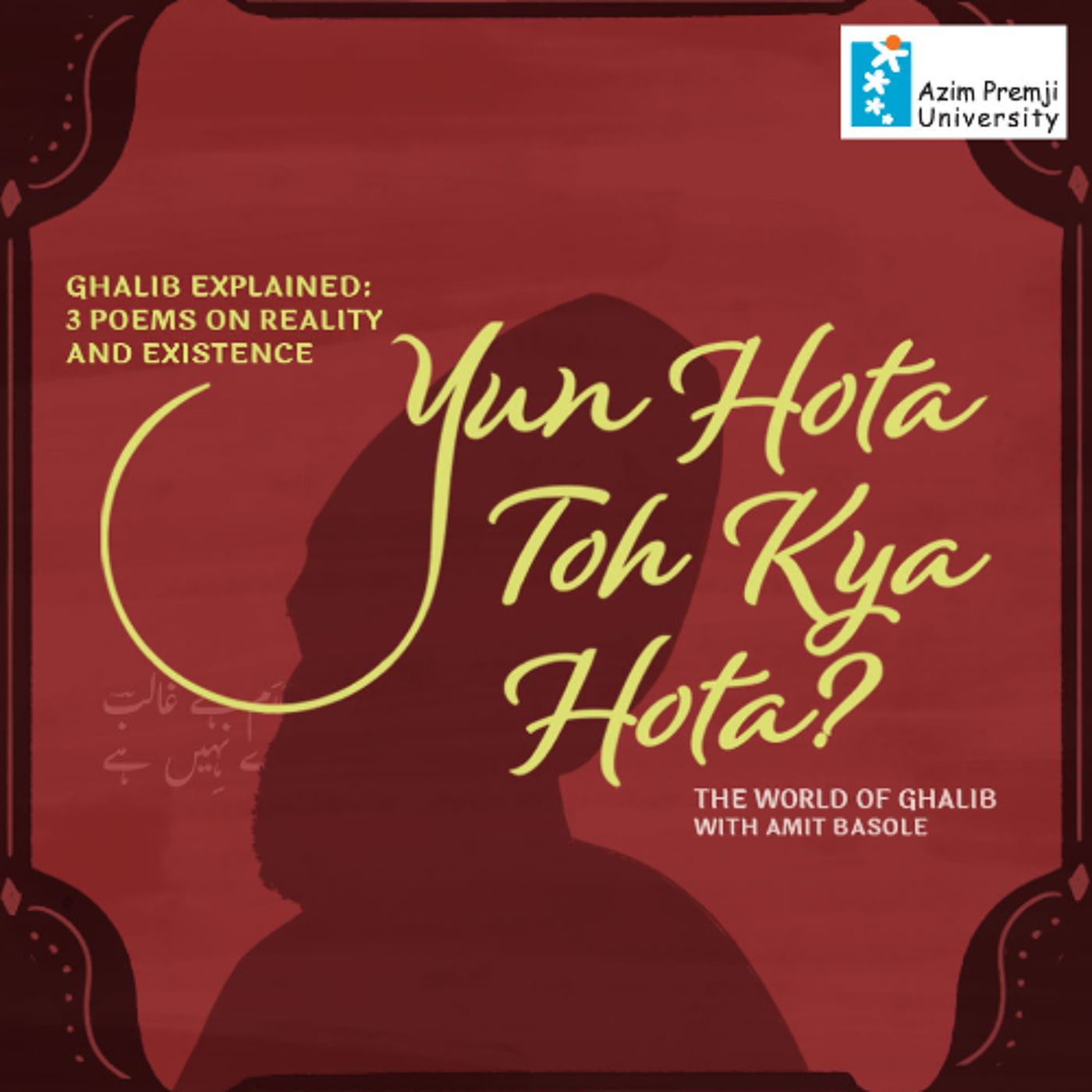
Mirza Ghalib, one of Urdu’s greatest poets, masterfully wove metaphysical reflections into his verse, questioning the nature of reality, existence, and perception. On the occasion of his 156th death anniversary, we revisit his poetry through a selection of verses from Yun Hota Toh Kya Hota: The World of Ghalib, a six-part series presented by Amit Basole, a poetry aficionado and faculty in economics at Azim Premji University. Ghalib’s poetry often challenges our understanding of the visible and the hidden, suggesting that what appears before us may, in fact, conceal a deeper truth. One of his celebrated verses plays with...
दिल की आवाज़ें | Sounds of the Heart | EP 3 of Likhe Jo Khat Mujhe | Radio Azim Premji University
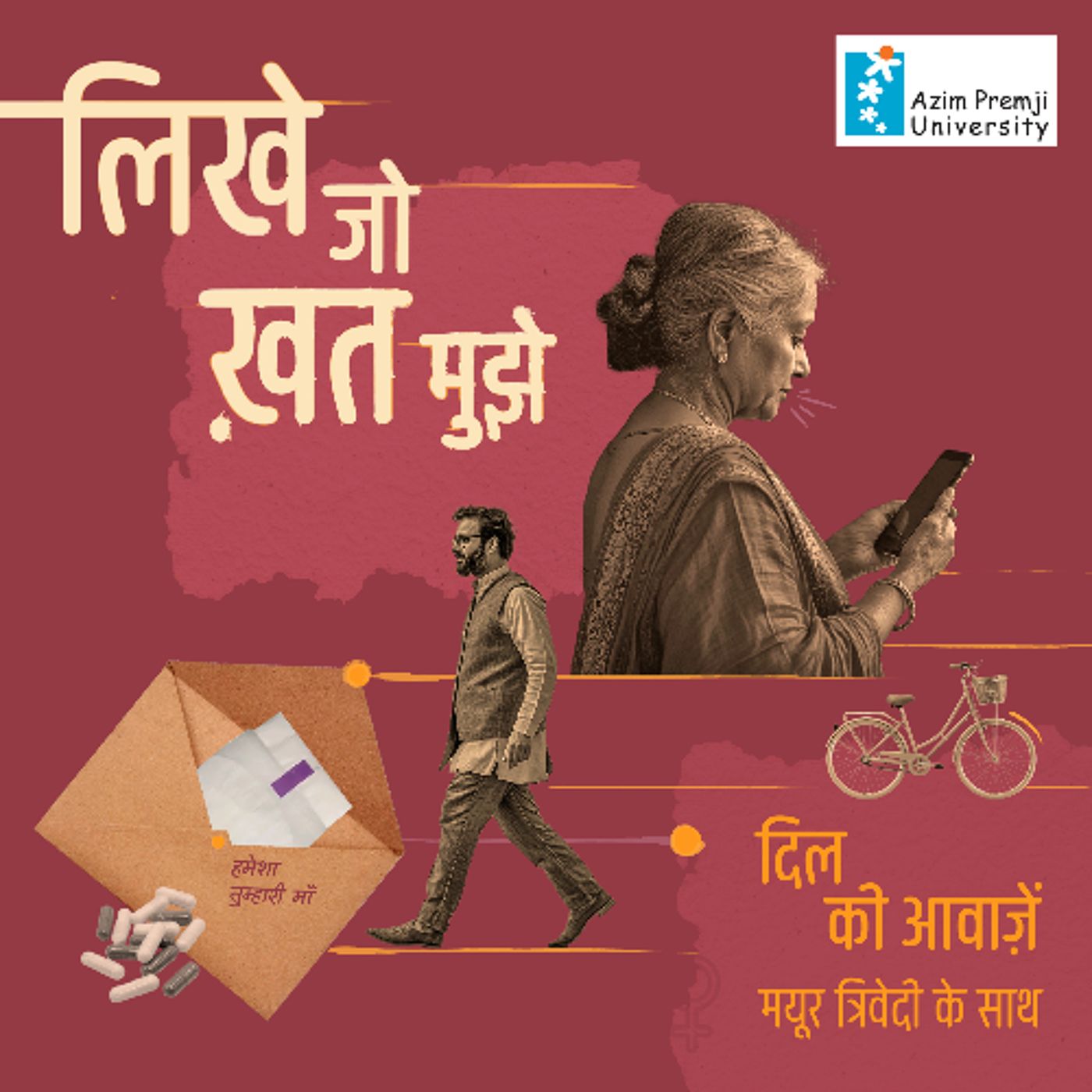
बचपन में जिन माँ-बाप की बातें पत्थर की लकीर लगती थीं, बड़े होकर उन्हीं से असहमति होने लगती है। विचारों की यह खाई अकादमिक दुनिया से जुड़े लोगों के लिए और गहरी हो जाती है, जब उनके सिद्धांत घर की हकीकत से टकराते हैं। “दिल की आवाज़ें” एपिसोड में एक माँ अपने बेटे—जो जेंडर स्टडीज के प्रोफेसर हैं—से अपने जीवन के संघर्ष साझा करती हैं। वह बताती हैं कि समाज की पहचान केवल किताबों से नहीं, बल्कि जीवन के अनुभवों से भी बनती है। माँ की बातों में एक हल्का-सा उलाहना भी है—“तुम पढ़कर जेंडर सिखाते हो, हम जीकर सीखते हैं। शायद मेरी ज़िंदगी के नोट्स तुम्हारी क्लासरूम में काम आएं।” बड़ा होने के साथ-साथ हम अपने माता-पिता को सुनना कम कर देते हैं, जिससे वे धीरे-धीरे चुप हो जाते हैं। लेकिन इस एपिसोड में, एक माँ यह चुप्पी तोड़ती हैं—प्यार, फिक्र और समझ के साथ। सुनिए “दिल की आवाज़ें”, “लिखे जो खत मुझे” के एपिसोड 3 में, सिर्फ़ रेडियो अज़ीम प्रेमजी यूनिवर्सिटी पर। ____________ In Dil Ki Awaazein (Sounds of the Heart), a mother shares her struggles with her son, a gender studies professor, offering a personal perspective on societal identity. She highlights the gap between academic theories and lived realities, reminding him, “You study gender; we women live it.” As children grow, they often stop listening to their parents, silencing them unintentionally. In this poignant episode, the mother breaks that silence—chiding yet understanding. She urges her son to keep learning, just as she continues to evolve. Listen to Episode 3 of Likhe Jo Khat Mujhe on Radio Azim Premji University. CREDITS Akshay Ramuhalli, Bijoy Venugopal, Bruce Lee Mani, Gorveck Thokchom, Narayan Krishnaswamy, Prashant Vasudevan, Sananda Dasgupta, Seema Seth, Shraddha Gautam, Supriya Joshi, and Velu Shankar Mother voiced by M Joshi Himani
जंगलों की आवाज़ें | Sounds of the Forest | Ep 2 of Likhe Jo Khat Mujhe with Mayur Trivedi
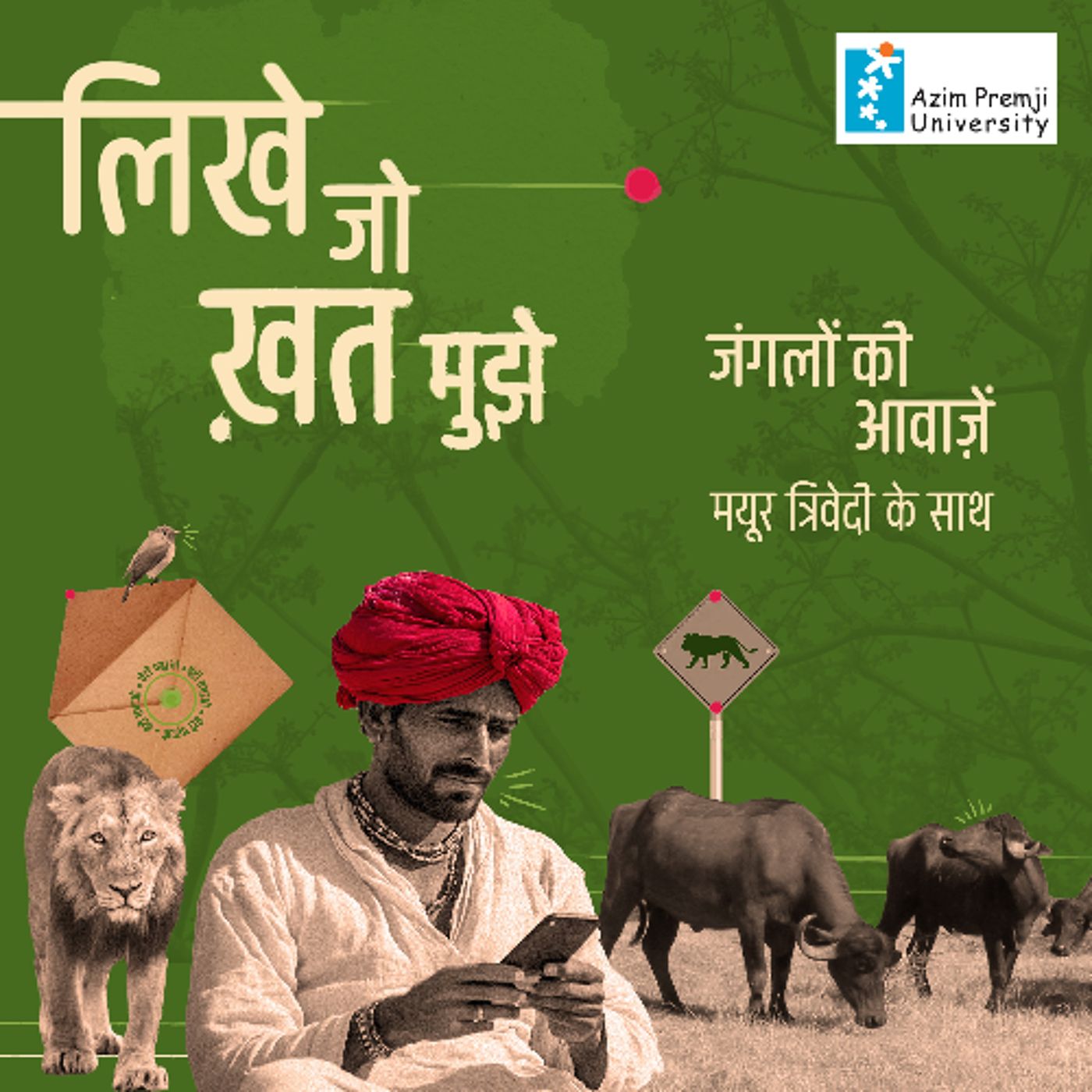
नमस्कार। हमारे रिसर्च के काम मैं एक एथ्नोग्राफी नाम की पद्धति हैं जिस मे रिसर्चर किसी एक समुदाय के लोगों के जीवन को समझने के लिए उन लोगों के बीच जाकर उन्हीं की तरह जीता हैं, और उन निजी अनुभवों से अपने निष्कर्ष निकालता है। मेरा ऐसा एक काम मुजे गीर फॉरेस्ट ले गया जहां सदियों से इंसान और उनके मवेशी Asiatic Lions के साथ शहर-गाँव से दूर जंगल की बीचोंबीच रहेते हैं। उन मालधारी समुदाय के साथ रह के मैंने ये जाना की शहर से दूर प्रकृति के साथ जीने वाले वनवासी लोग अपने जीवन के निर्णय कैसी कैसी मान्यताओं, जरूरतों, अनुभवों या मूल्यों के आधार पर लेते हैं। ‘जंगल की आवाजे’ नाम के इस एपिसोड मे सुनिए गीर नेशनल पार्क के भीतर से भिखाभाई मालधारी का एक पत्र जिसमे वो मुजे पॉपुलेशन कंट्रोल, सन परेफ़रस, और बेटी बचाओ के बारे मे अपने खयालात बता रहे हैं। — मयूर त्रिवेदी ______ The Beti Bachao, Beti Padhao (Save Daughters, Educate Daughters) campaign by the Government of India aims to address the issue of the declining child sex ratio. However, implementing such well-meaning initiatives often runs into resistance among communities where traditions and livelihoods are deeply intertwined. To truly understand their opposition to these programmes, one must be intimately sensitive to the everyday lives of these communities. In this episode of Likhe Jo Khat Mujhe, host Mayur Trivedi, a public health researcher who teaches at Azim Premji University, Bhopal, shares a heartfelt fictional letter from Bhikhabhai, a Maldhari shepherd who lives in the Gir Forest. Bhikhabhai recounts his interactions with the researcher, who had spent time with him and his community during an ethnographic field visit. Unlike other researchers, who kept their distance from the subjects of their fieldwork, this person had lived among the Maldhari people, sharing their meals and witnessing their daily struggles. This exchange left a lasting impression on Bhikhabhai, who pondered over the researcher’s advice to him about his preference for sons over daughters. In his letter to the researcher, Bhikhabhai reflects on this sensitive issue, which is rooted in the unique challenges of his jungle-based lifestyle. He explains how their survival depends on cattle, community ties, and traditional roles. In his pastoral community, having a son is not viewed as a rejection of daughters, but a necessity to ensure economic continuity, care in old age, and social acceptance. In Junglon Ki Awaazein, Mayur Trivedi invites listeners of Likhe Jo Khat Mujhe to reflect on their inherent cultural biases and blind spots, and reexamine how the life choices of remote communities are often determined by necessity rather than
Sadkon Ki Awaazein - सड़कों की आवाज़ें - लिखो जो ख़त मुझे मयूर त्रिवेदी के साथ Ep 1
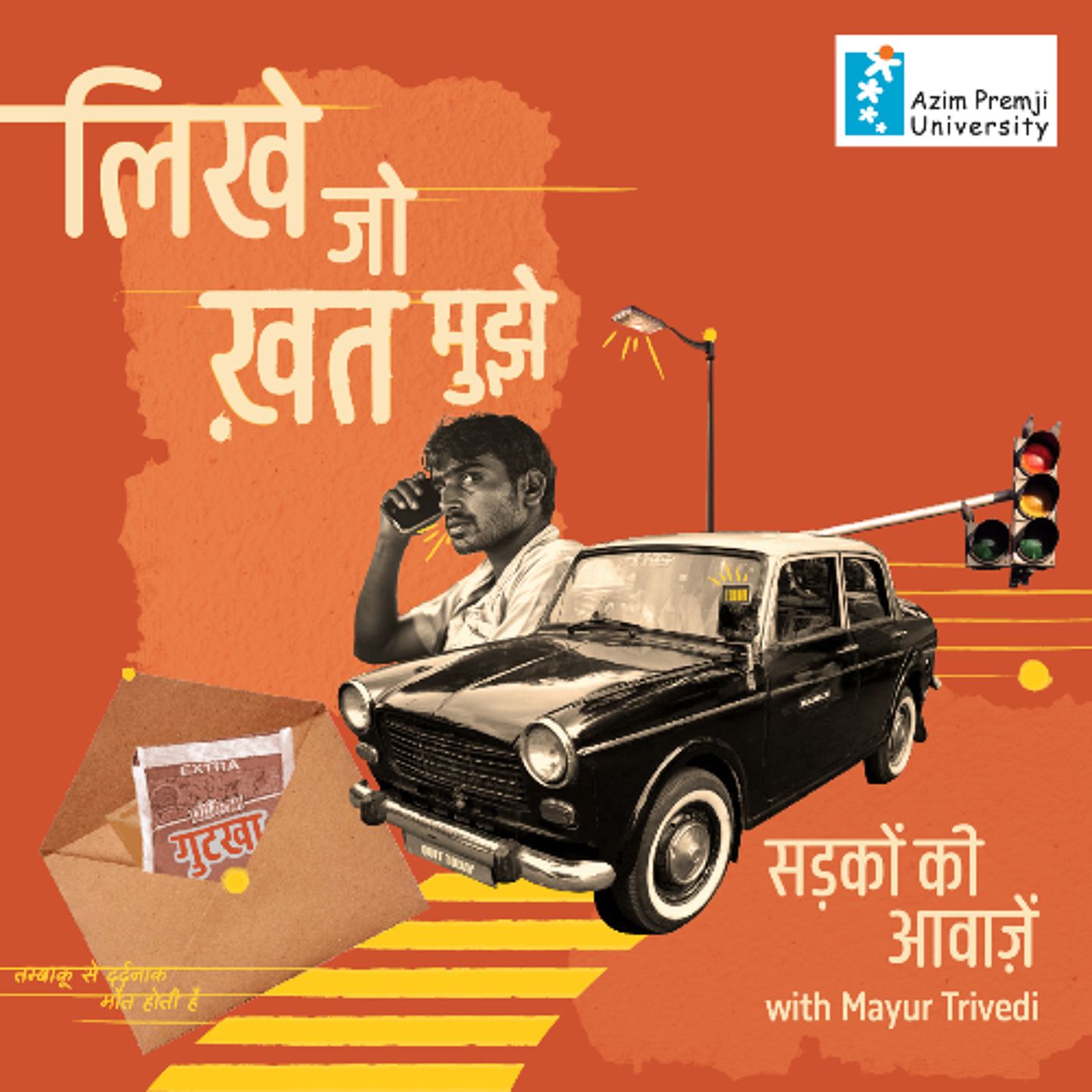
'सड़कों की आवाज़ें' शुरुआती दिनों मे एक यंग एनेरजेटिक पब्लिक हेल्थ रिसर्चर के रूप में मैं लोगों को तंबाकू छोड़ने के लिए कहता रहता था। ‘भारत मे तंबाकू से संबंधित बीमारियों से हर दिन 2000-3000 लोग लोग मरते हैं। ‘पैकेट में मौत लिखी है वाली अक्षय कुमार की ऐड नहीं देखी?’ वगेरे वगेरे। फिर मैं 30-35 साल के कैब ड्राइवर रमेश को मिला। क्यूंकी ड्राइवर लोगों मे तंबाकू का उपयोग बहुत आम है, मैं तंबाकू के बारे मैं रमेश को बताता गया और वो दिन रात सड़कों पर अपनी टेकसी चलाते चलाते मुजे चुपचाप सुनता गया । रोजाना मिलों का सफर तय करने वाले रमेश ने एक दिन अपने भीतर की यात्रा की, और हिम्मत जुटा कर मुझे अपने मन की बात कह दी। ''सड़कों की आवाज़ें' नाम के इस एपिसोड में आइए रमेश के तंबाकू छोड़ने के दिलचस्प दृष्टिकोण को उसी की जबान मे सुनते हैं। __ “I’m off now, wherever the road takes me…” As a young and spirited public health researcher, the presenter urged people to quit tobacco. And then he met Ramesh, a cab driver in his mid-thirties, who listened to him quietly as he drove the researcher around on his field visits. In answer to the social worker’s long sermons on the ill effects of tobacco, Ramesh said nothing. One day, unexpectedly, the researcher receives a notification on his phone. It is a long message, in Hindi, from Ramesh. The cab driver politely speaks his mind and opens his heart in a way that makes the researcher think, and consider the question deeply. “Professor Saab, you might think I chew tobacco out of habit or for fun. But no, it’s not like that. It helps me work. I have to drive for hours, day and night. You guests rest in the back after your meals, but I have to stay alert to get you home safely. When one is alone and has to stay awake, one needs some company. It keeps us going…” Ramesh appears to be defending his tobacco habit, but in actuality he is uncovering the hard life of a daily wage earner who toils to make ends meet, and has to withstand numerous societal challenges every day. More so, it shines a light on the public healthcare system that makes little effort to prevent tobacco consumption but wakes up only when a user falls ill. “If society or the government really wanted us to quit, they’d make it harder to access tobacco, wouldn’t they?” Ramesh asks. “But no, it’s available everywhere. Every other shop sells it alongside biscuits, hair oil, and shampoo. It’s cheaper than tea.” What do you feel after listening to Ramesh’s letter? Drop us a no
Jaagte Raho | Ep 6 - Samvidhaani Pitaara with Vineet KKN Panchhi | Radio Azim Premji University
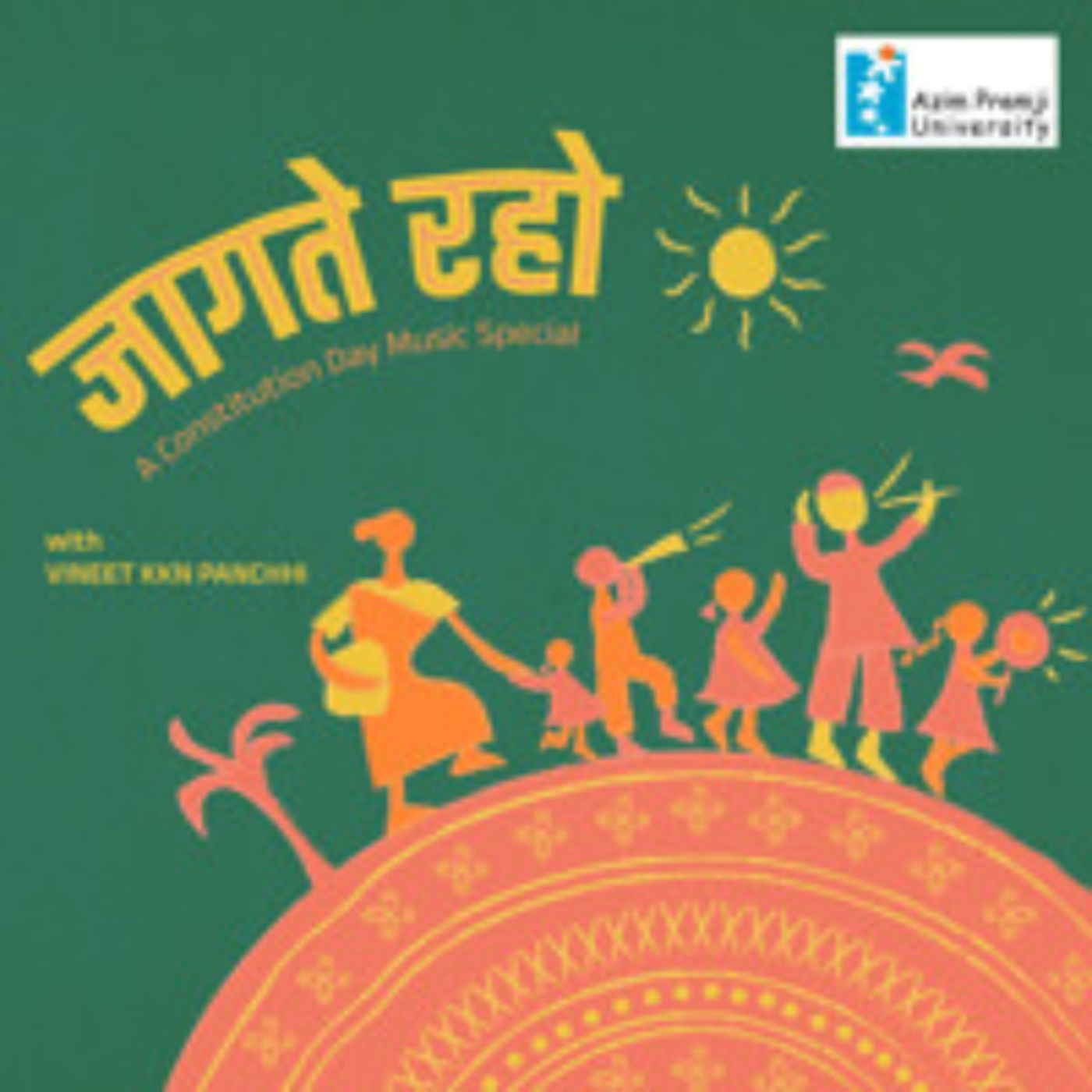
November 26 is Constitution Day in India. It also marks the first anniversary of Samvidhaani Pitaara presented by Vineet KKN Panchhi. Our sixth episode is a special celebration of music that echoes our mission to know our rights, and to stand up for them. When speech is throttled, only music has the power to dispel silence. That is why Jaagte Raho is no mere music playlist; it is a representation of emotions that constitute the heartbeat of our nation, the bedrock of our constitutional values. This meaningful selection of songs weaves a narrative of resistance, hope, and the quest for justice...
Net-Net - Ep 4 of Economies Of Khel | Radio Azim Premji University Podcast
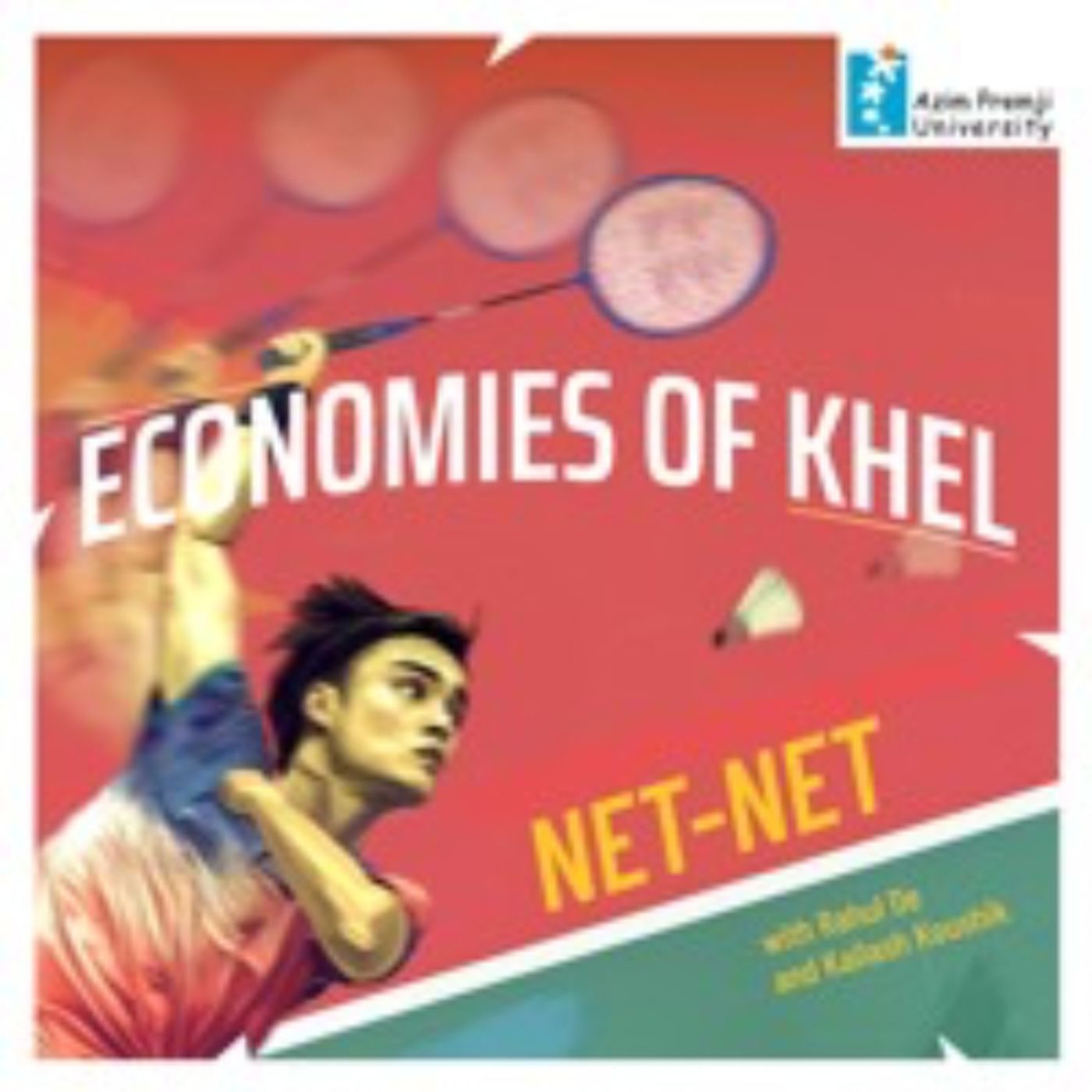
Guess what screams through the air at a whopping 565 km per hour? Not a peregrine falcon. Not a bullet train. Not even a Bugatti on the freeway. It’s a shuttlecock flying off the racquet of an Indian champion who set the Guinness record for the fastest smash. In ‘Net-Net’, episode 4 of Economies of Khel, economist Rahul De and media studies expert Kailash Koushik analyse the curious subculture and economic currents shaping one of India’s most cherished sports. They explore how badminton has woven itself into the social fabric of India. For a sport that began in India as a Britis...
Kannada Geetamaale | ಕನ್ನಡ ಗೀತಮಾಲೆ | Noorakke Nooru Karnataka Ep 5
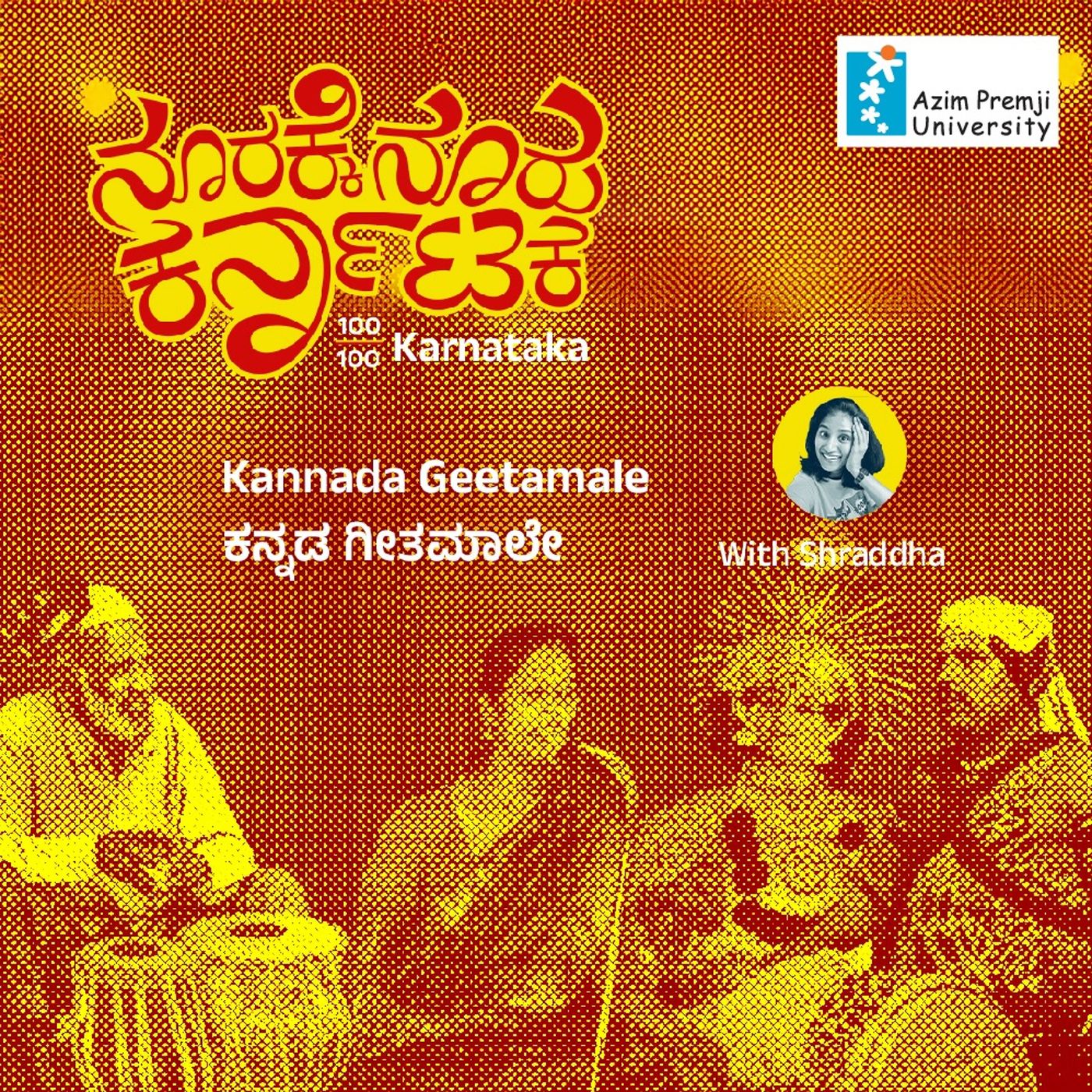
In this special edition of Noorakke Nooru Karnataka in observance of Karnataka Rajyotsava, we celebrate Karnataka’s rich musical heritage with a selection of old classics and contemporary favourites. Hosted by Shraddha and peppered with special messages from the artists, Kannada Geetamale embodies the spirit of Kannada. This playlist of eleven soulful tracks span decades and emotions, showcasing the beauty of our language and the diversity of our people. As we commemorate Karnataka Rajyotsava, let’s embrace the inclusivity, warmth, and resilience that define Karnataka’s spirit. May our music, language, and culture continue to thrive. Jai Karnataka! Acknowledgements: Raghavendra Herle...
Bhakti Republic with Amit Basole| Ep. 5| Jamuna Kinare
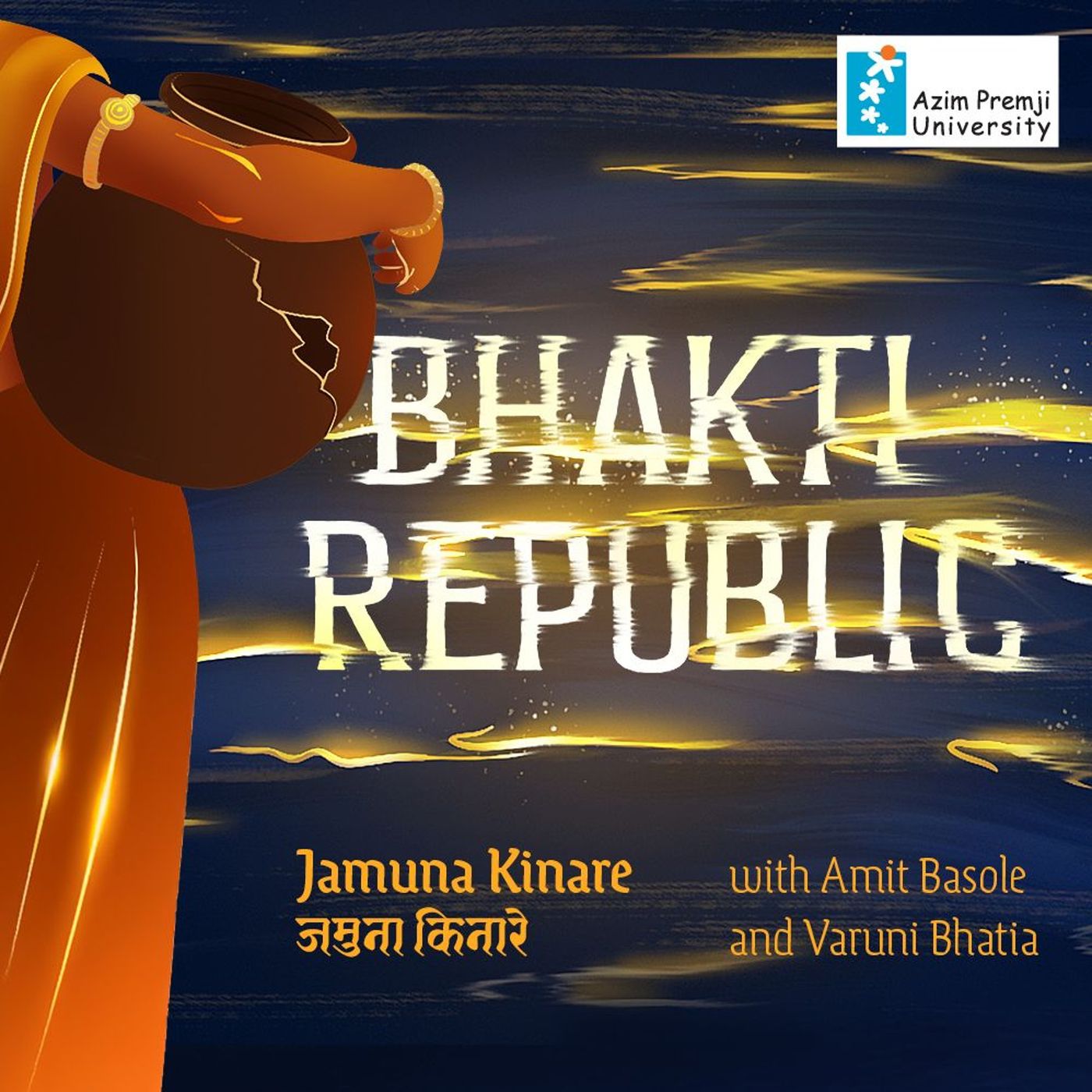
In this series finale of Bhakti Republic, host Amit Basole explores the vibrant tradition of Krishna Bhakti with historian Varuni Bhatia. Krishna Bhakti, known for its focus on Krishna’s playful and youthful persona, has long been a cornerstone of devotion in regions like Brindavan, where his divine pastimes with Radha are revered. The episode explores the unique aspects of this devotional movement, including its emphasis on prema rasa—the essence of pure love that drives followers to renounce worldly attachments. Varuni traces how Chaitanya, a 15th-century mystic, transformed Brindavan into a spiritual realm and how Krishna Bhakti spread across Indi...
The Stream Edition 3 | October 17, 2024 | Radio Azim Premji University
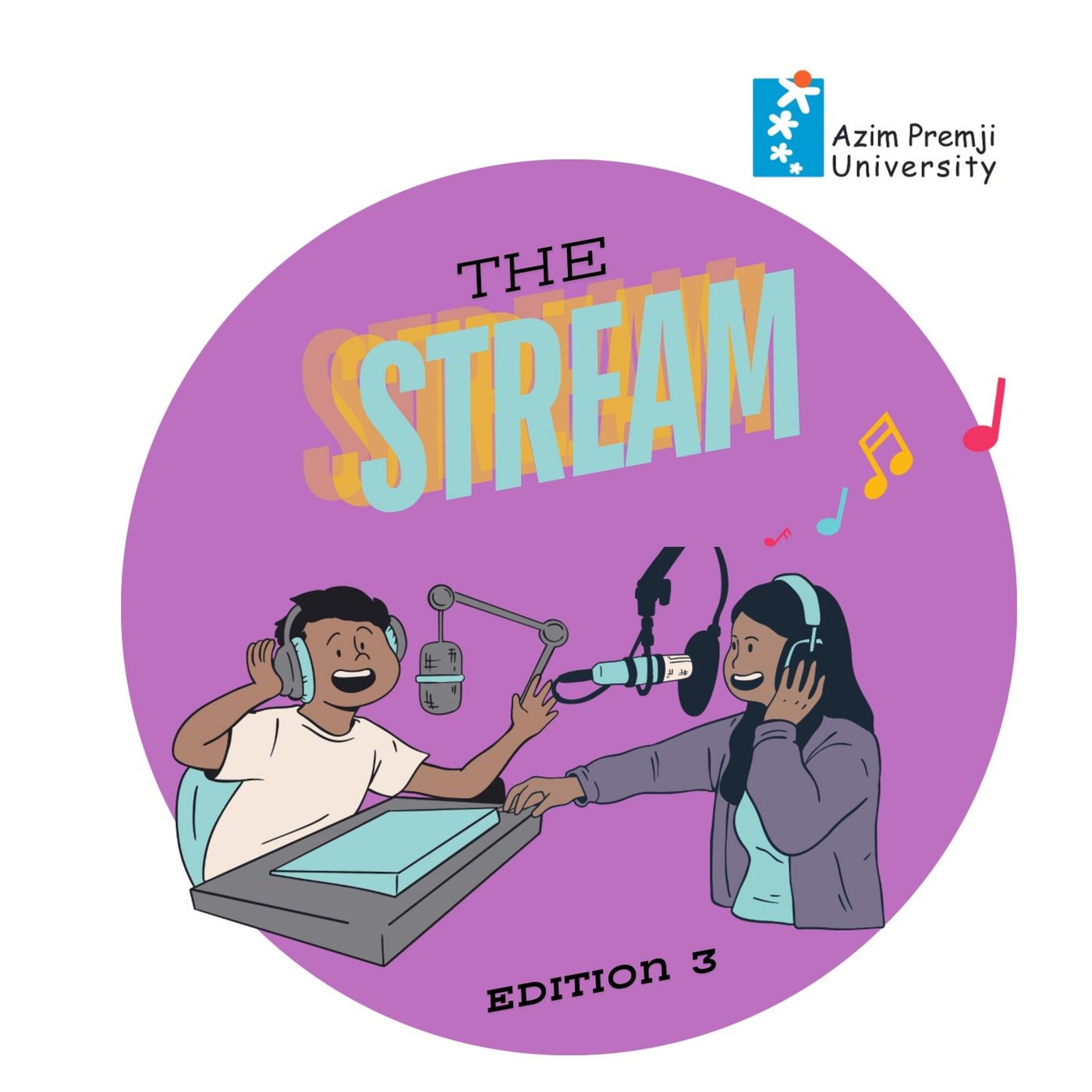
Featured in The Stream - Edition 3, October 17, 2024 Shows and Episodes: The India Project with Josy Joseph - Indore Almost Perfect - 200 metres from Glory - Rita Gombu Marwah Stories of Change - Snehadhara Well Caught - Spinning Through The Seventies Original Music and Soundtracks: 1. Amhi Vaarika Vaarika 2. River Song by Bhatiyali singers 3. Acha Shiva Aikyange - Kayakave Kailasa - Music for Bhakti Republic by MD Pallavi and Bruce Lee Mani 4. Halpudi Haadu - the Tooth Powder Song 5. Prema Pisey Credits: Student team: Aashi Chheda, Hitika Gilhotra, Kinshuk Ghosh Radio APU is brought to you by: Akshay Ramuhalli, Bijoy Venugopal, Bruce...
Fists Of Fury - Sarita Devi | Almost Perfect Ep 5 | Radio Azim Premji University
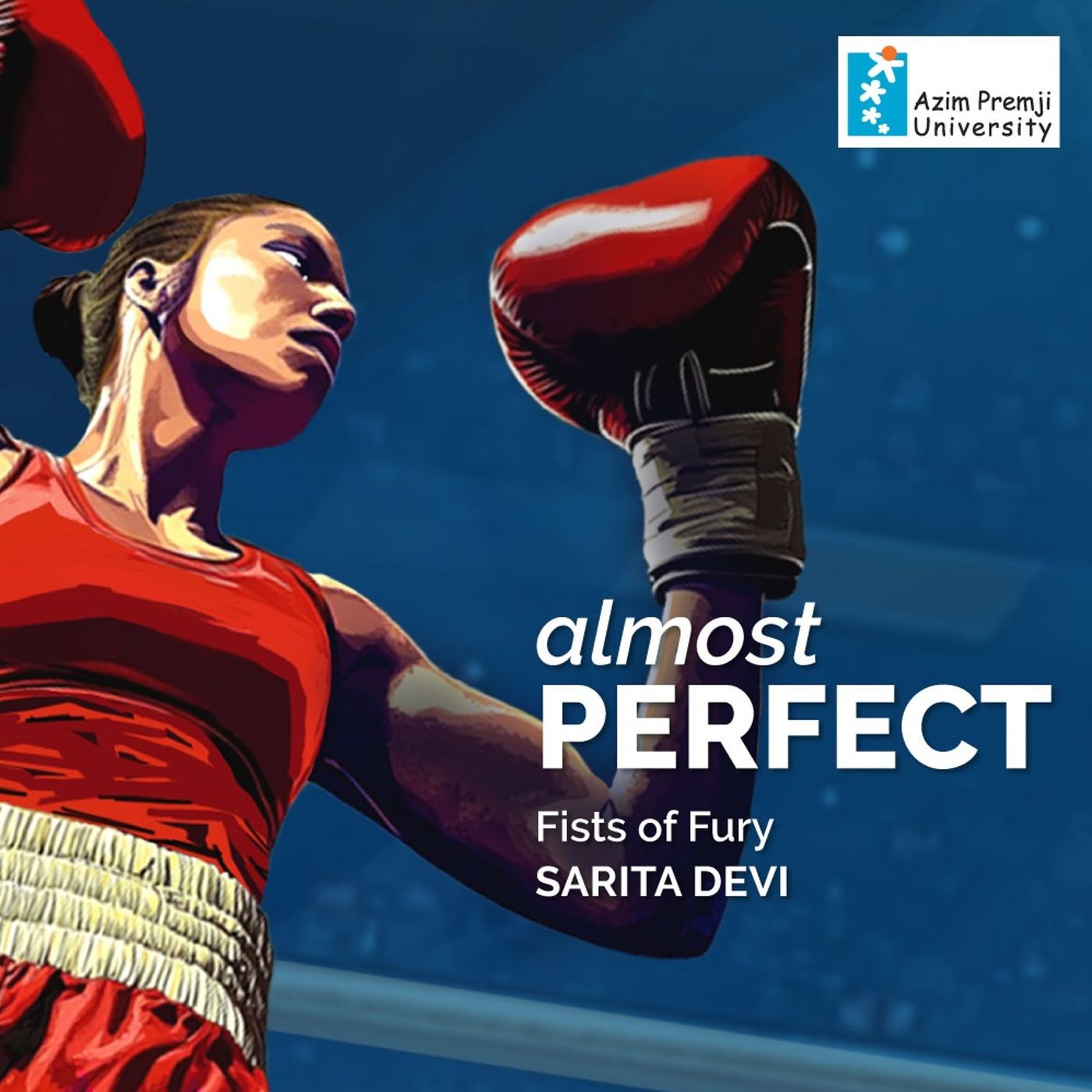
Laishram Sarita Devi’s journey from the insurgency-affected streets of Manipur to the international boxing arena is one of defiance, resilience, and hard-earned success. After the tragic loss of her father, a young Sarita was tempted to join the insurgency, even transporting weapons for militants. But before she could lose herself to that life, her brother intervened, steering her toward sports. Sarita initially took out her frustration in taekwondo before transitioning to boxing under the guidance of coach Ibomcha Singh. This shift didn’t just save her—it ignited a passion for boxing and a dream to represent India. Her rise b...
Ep 3 - Run Bhoomi | Economies Of Khel
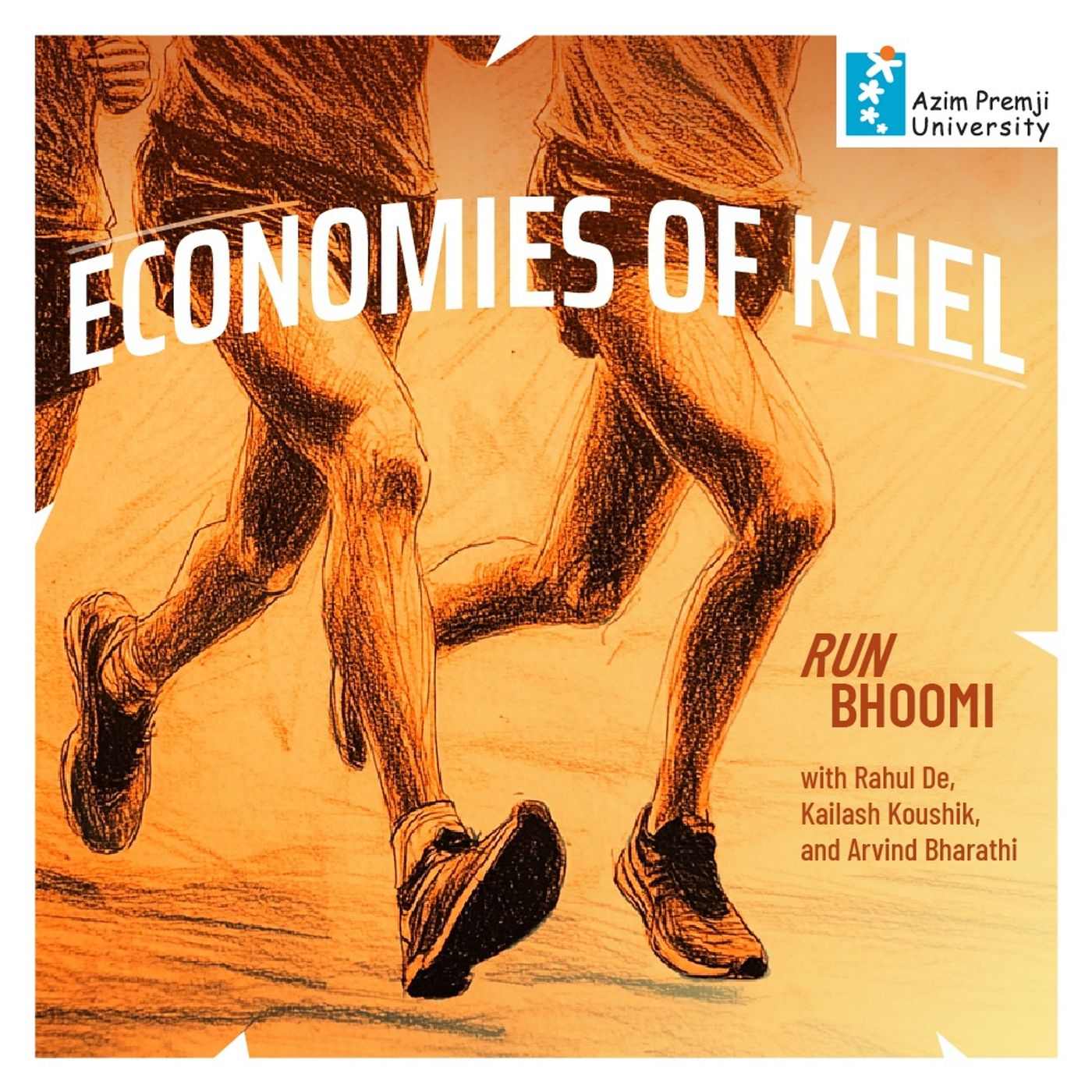
Over the past two decades, running in India has transformed from a niche pursuit to a mainstream phenomenon, driven by rising fitness awareness, social influencers, and dedicated running communities. This evolution began in the late 2000s, when tech professionals returning to cities like Bengaluru from the USA brought with them the enthusiasm for long-distance running, a trend that had already gained popularity in the West. In Bengaluru, communities like the Hashhouse Harriers and pioneers such as Kodavathi Pani played a key role in making running accessible and organised. As interest grew, running blossomed into both a passion sport and a...
D V Gundappa (DVG) | ಡಿವಿಜಿ
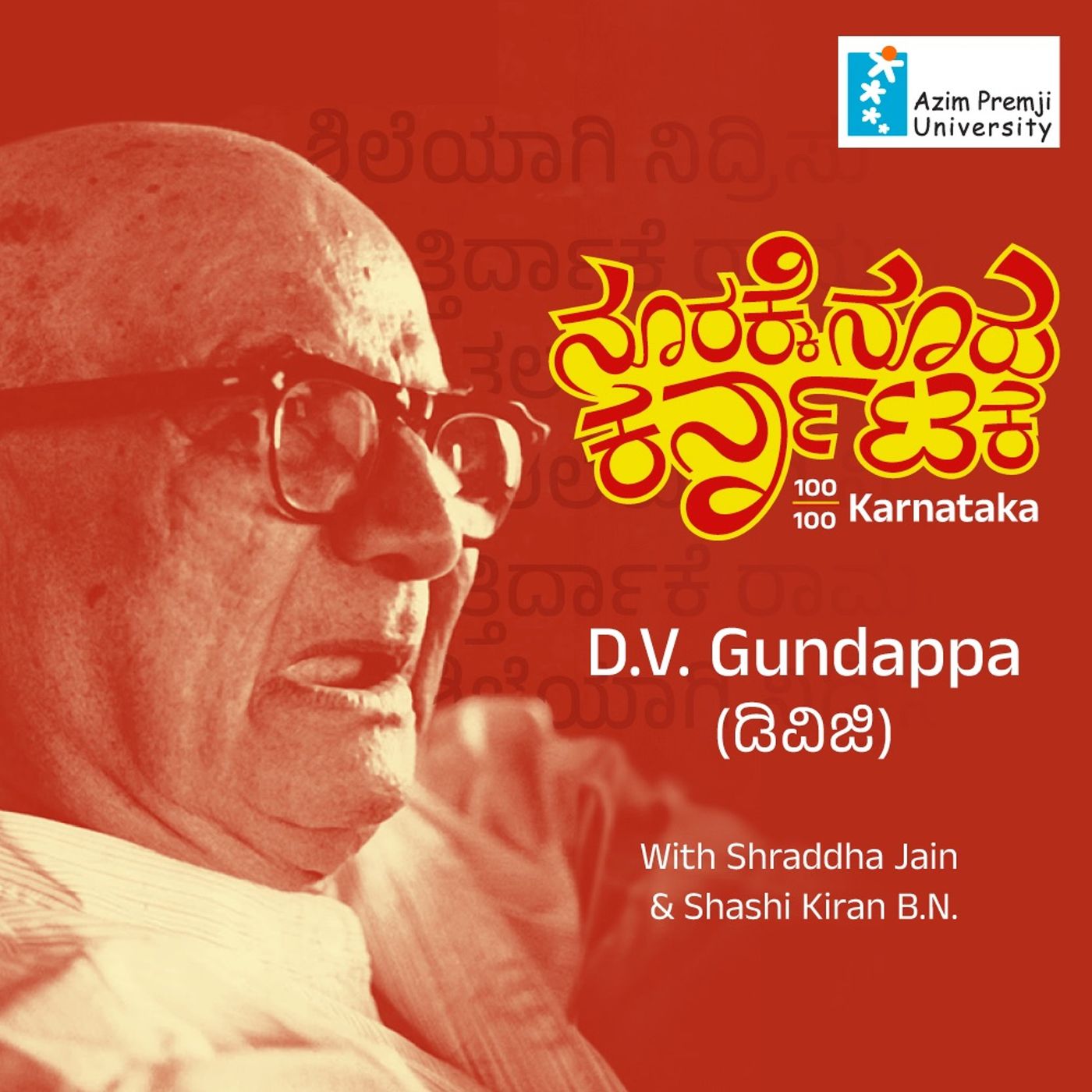
Episode 4 of Noorakke Nooru Karnataka focuses on the revered Kannada writer D V Gundappa (DVG). Bengaluru-based scholar Shashi Kiran B N, a contributing editor of Prekshaa and an award-winning Sanskrit scholar, joins the hosts to discuss DVG’s profound contributions. Born in 1887, DVG was largely self-taught, mastering multiple languages and gaining deep knowledge in Vedic literature and Western philosophy. His celebrated works, particularly Mankuthimmanna Kagga and Marula Muniyana Kagga, distill complex ideas into simple reflections on life. Known for his humility, DVG referred to himself as a publisher rather than the author of these timeless meditations. DVG’s influence remains stro...
Story Of Spiders | Story Of… with Richa Govil | Radio Azim Premji University
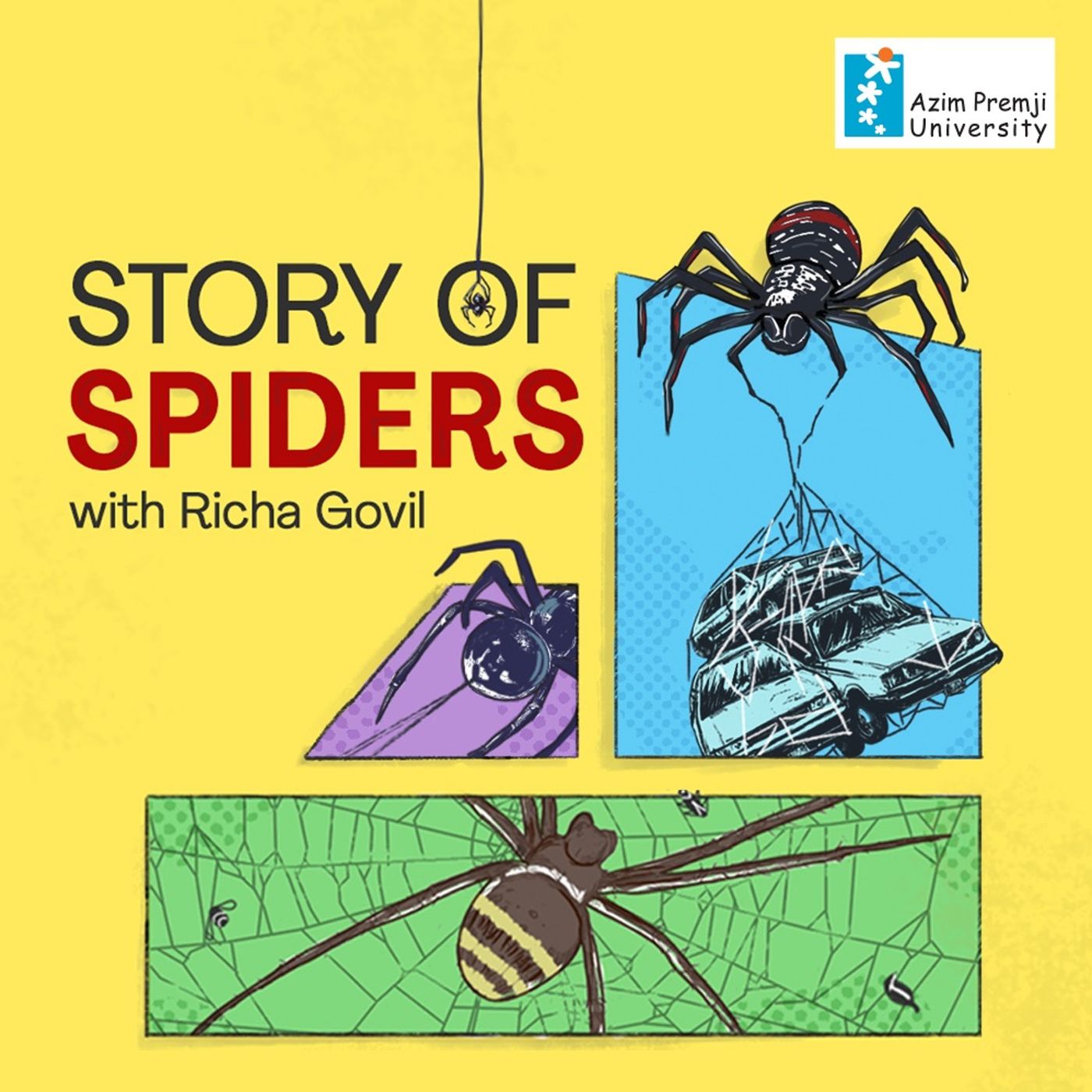
What has eight legs and might have just had a husband for dinner? Most likely a spider. Often confused with insects, spiders have long been the subject of myths and stereotypes in literature, movies, and pop culture. Hollywood often depicts them as big, hairy, and dangerous monsters with ravenous appetites. However, this portrayal overlooks the critical role spiders play in the world’s ecosystems, explains biologist Divya Uma from Azim Premji University in conversation with Richa Govil in this episode of Story Of… Spiders are far from the villains they are often made out to be. In reality, they are a cr...
Kabaddi Kabaddi Kabaddi | Ep 2 - Economies of Khel
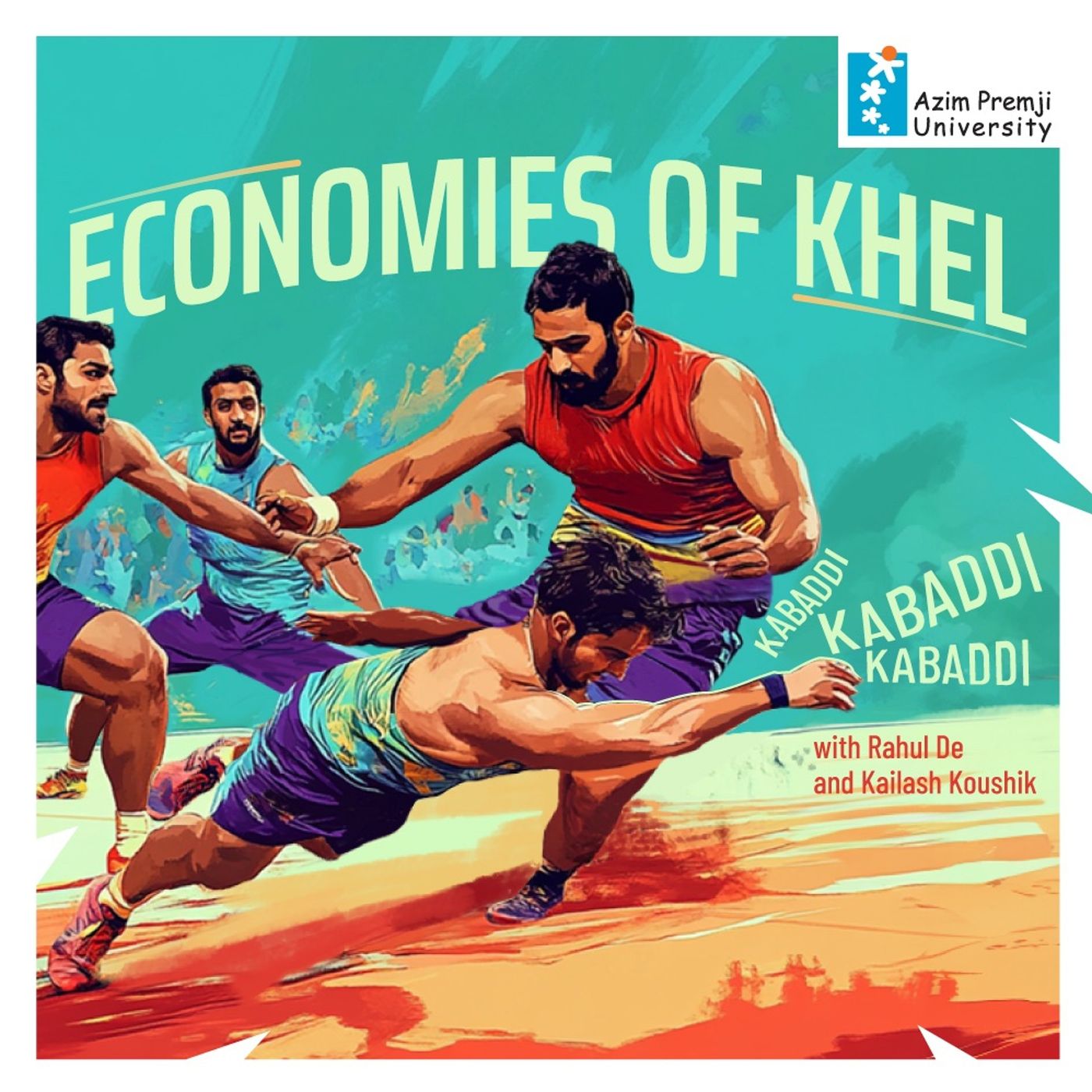
In 2022, six years after its inception, the Pro Kabaddi League (PKL) became the second most-watched sports event in India with 220 million viewers, surpassed only by the Indian Premier League (IPL) for T20 cricket. What fuelled its meteoric rise? In the second episode of Economies of Khel, economist Rahul De and media expert Kailash Koushik explore how kabaddi transformed from a rural pastime into a professional sport. They trace its roots back over 4,000 years in the Tamil-speaking region of southern India and its evolution in northern India’s traditional wrestling akhadas, where it was used to build physical fitness and combat sk...
The Stream | Edition 2 - August 2024
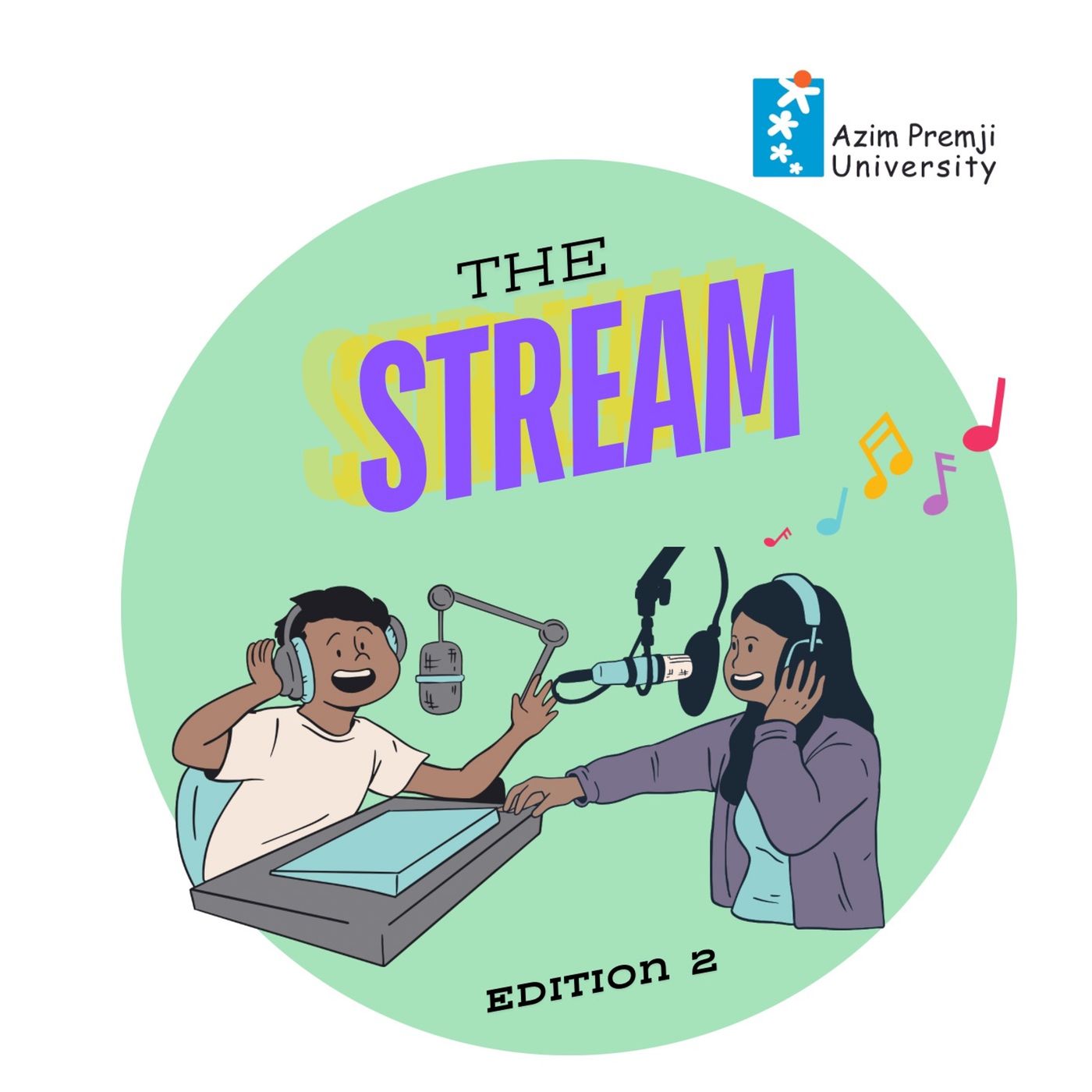
The Stream Edition 2 In this edition: A. Shows and episodes: Sahir Ludhianvi’s Bombay - Excerpt from Bombay Talkies - Bonus Episode of Bhakti Republic with Amit Basole Cricket and caste - The Baloo Palwankar story | Excerpt from Well Caught Ep 1 - Separate Gates, Separate Dressing Rooms Round Figure - excerpt from It’s A Math Math Math World Grain Of Truth - excerpt from the Story Of Rice B. Original Music - Ullavaru Shivalaya… from Kayakave Kailasa - Music for Bhakti Republic by Pallavi MD and Bruce Lee Mani - Kole Basava OST by Bruce Lee Mani featuring Manjunath V on N...
Hindustan Ki Nayi Geetmala - Azaadi Special
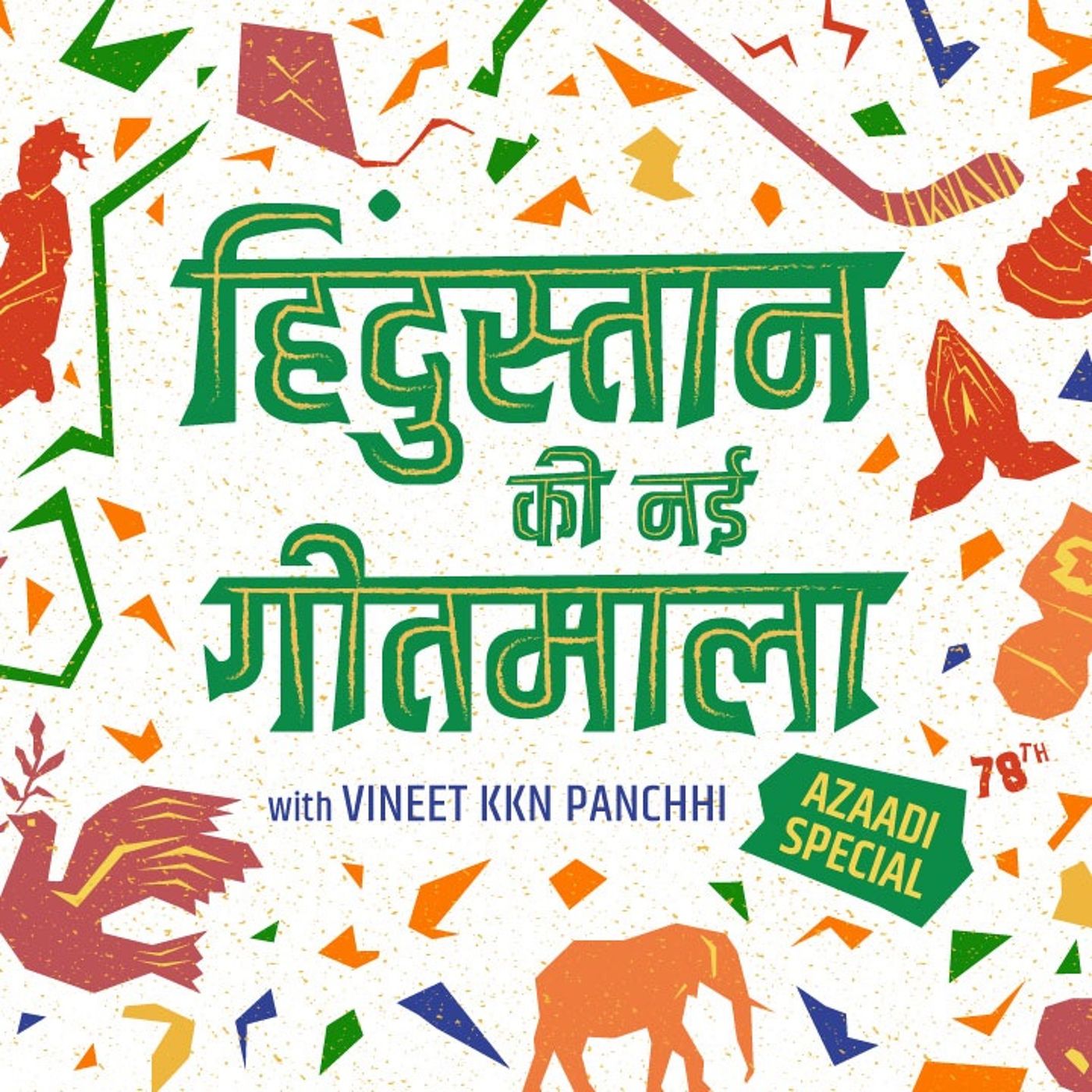
Is there a uniquely Indian idea of freedom? The music of our beating hearts weaves the multifaceted tapestry that is India. This Independence Day, we remind ourselves yet again what it means to be Indian. Hosted by Vineet KKN Panchhi of The Jai Hind Project, this special edition of Samvidhaani Pitaara is aptly titled “Hindustan Ki Nayi Geetmala - Azaadi Special” — a playlist of tunes and voices that sing of our yearning for freedom. Featuring voices old and new, familiar and quaint — from Indian Ocean to Ustad Nusrat Fateh Ali Khan, from Folk Masti to A R Rahman — which resonate with the q...
Unboxed - Mango People with Sharmadip Basu | Radio Azim Premji University
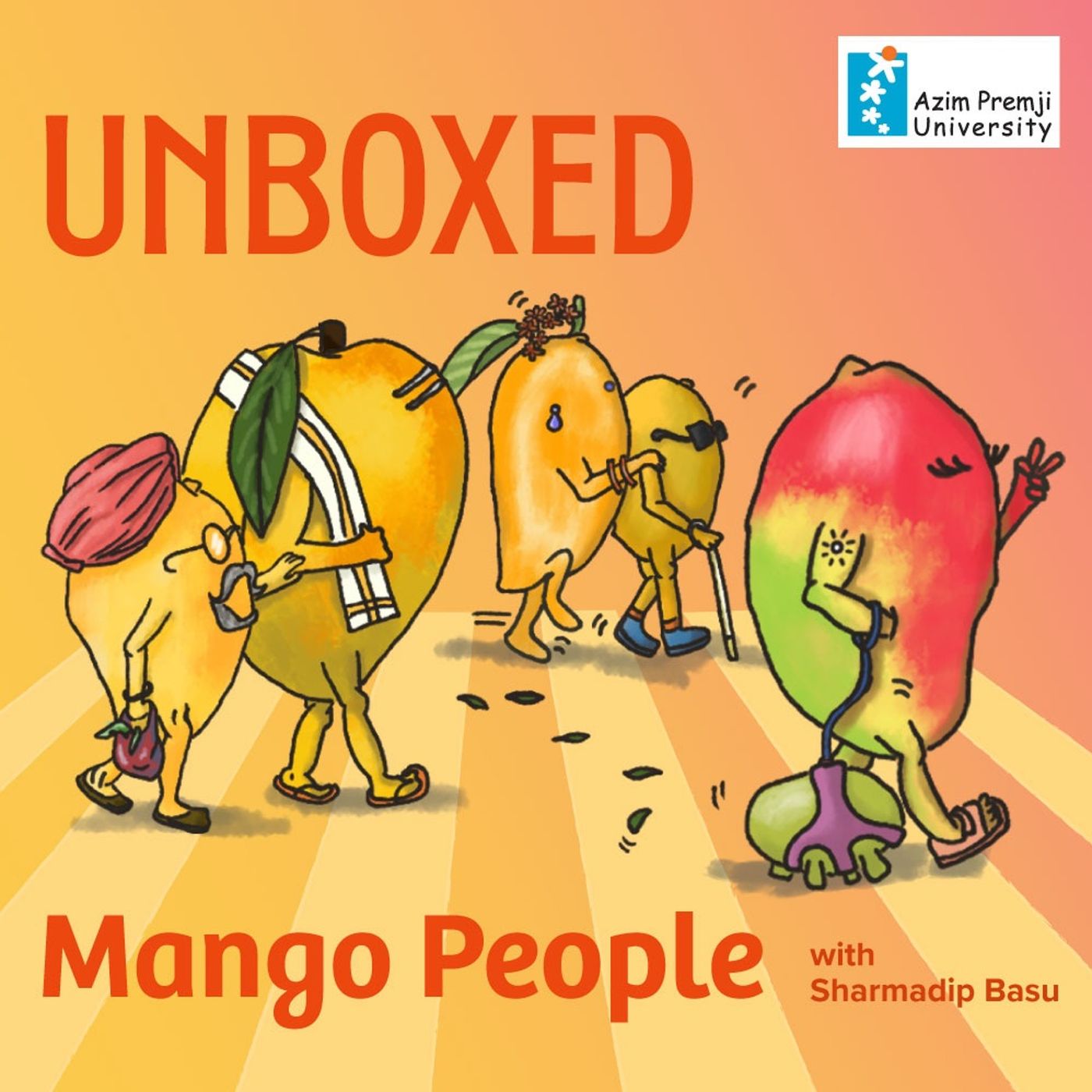
Did you know that Indian Yellow, the pigment with which Vincent Van Gogh painted the luminous moon in his masterpiece Starry Night, was prepared from the dried urine of cows fed exclusively on mango leaves? Or that India, despite being the world’s largest producer of mangoes, exports less than 1% because Indians can never be done eating their produce? Or that we may be throwing away the most nutritious and medically valuable part of the mango — its seed? The mango is undeniably the king of fruits, evoking passions that span literature, diplomacy, botany, agriculture, and economics. It is a fruit that...
Apna WWE | Economies Of Khel Ep 1 | Radio Azim Premji University
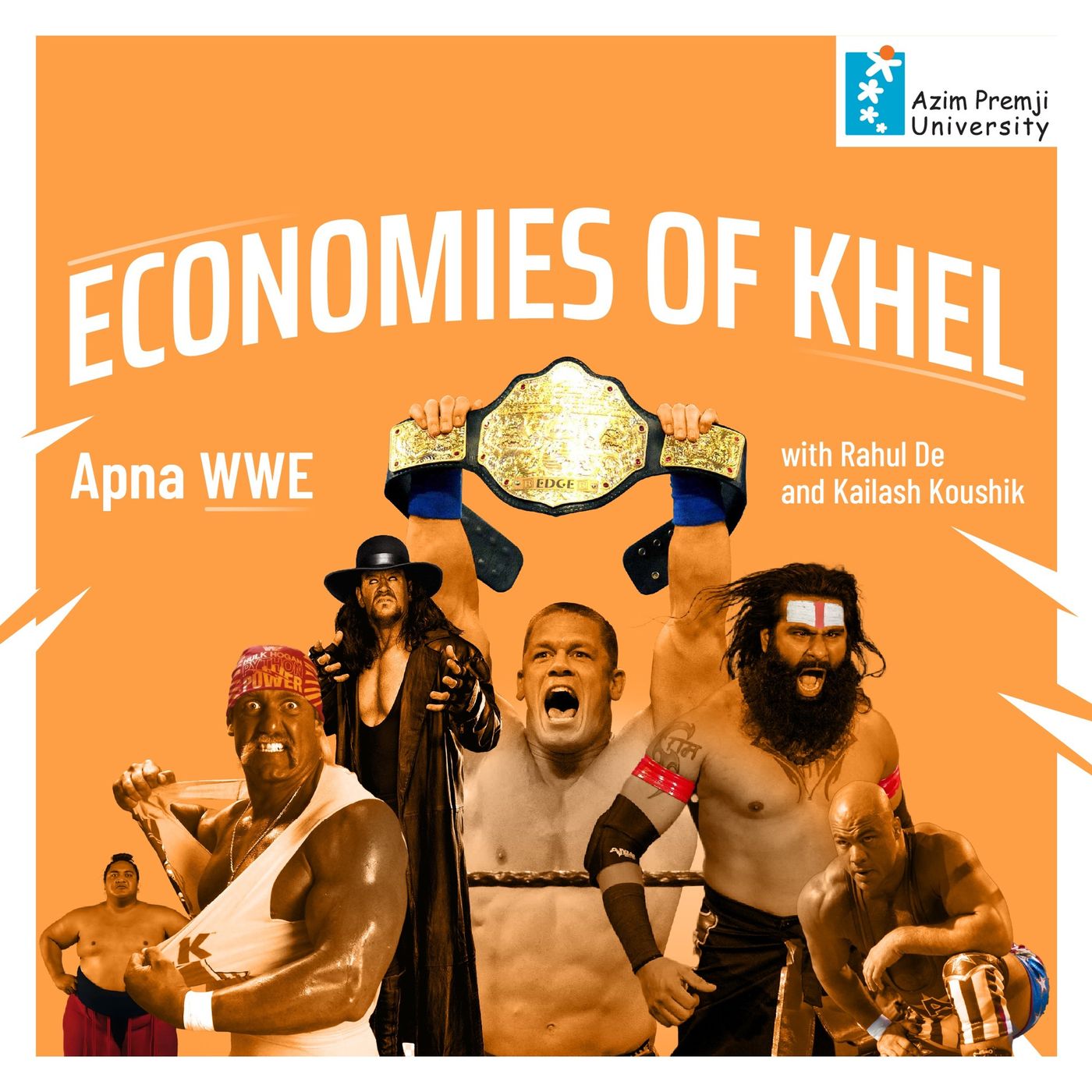
Fun fact: In 2002, the World Wrestling Federation (WWF) rebranded to World Wrestling Entertainment (WWE) after losing a legal brawl with the World Wildlife Fund. Whatever name it goes by, the raging popularity of televised professional wrestling—a mix of mock combat and showmanship—is no accident. Despite its wild and boisterous nature, WWE’s over-the-top theatrics have found a dedicated following among Indians raised on Bollywood potboilers and saas-bahu soap operas. India has a long history of formal wrestling in the akhadas, but wrestling as branded entertainment took off in the 1990s with the advent of satellite cable TV after econom...
Trailer - Economies Of Khel | Radio Azim Premji University

Rahul De, who teaches economics at Azim Premji University, Bengaluru, is obsessed with the business of sport. Of particular interest to him are sporting activities that are off-radar for the mainstream, yet command a devoted fan base. Think WWE, kabaddi, running… How do these sports find a market, build loyal communities, and generate money for participants and promoters alike? Co-presenting the series are Kailash Kaushik, Assistant Professor at the School of Arts and Humanities at Christ University, Bengaluru, and Arvind Bharathi, who is with the School of Arts and Sciences at Azim Premji University. Subscribe to be notified about upcoming ep...
The Path To Pandharpur | Bhakti Republic with Amit Basole Ep 4
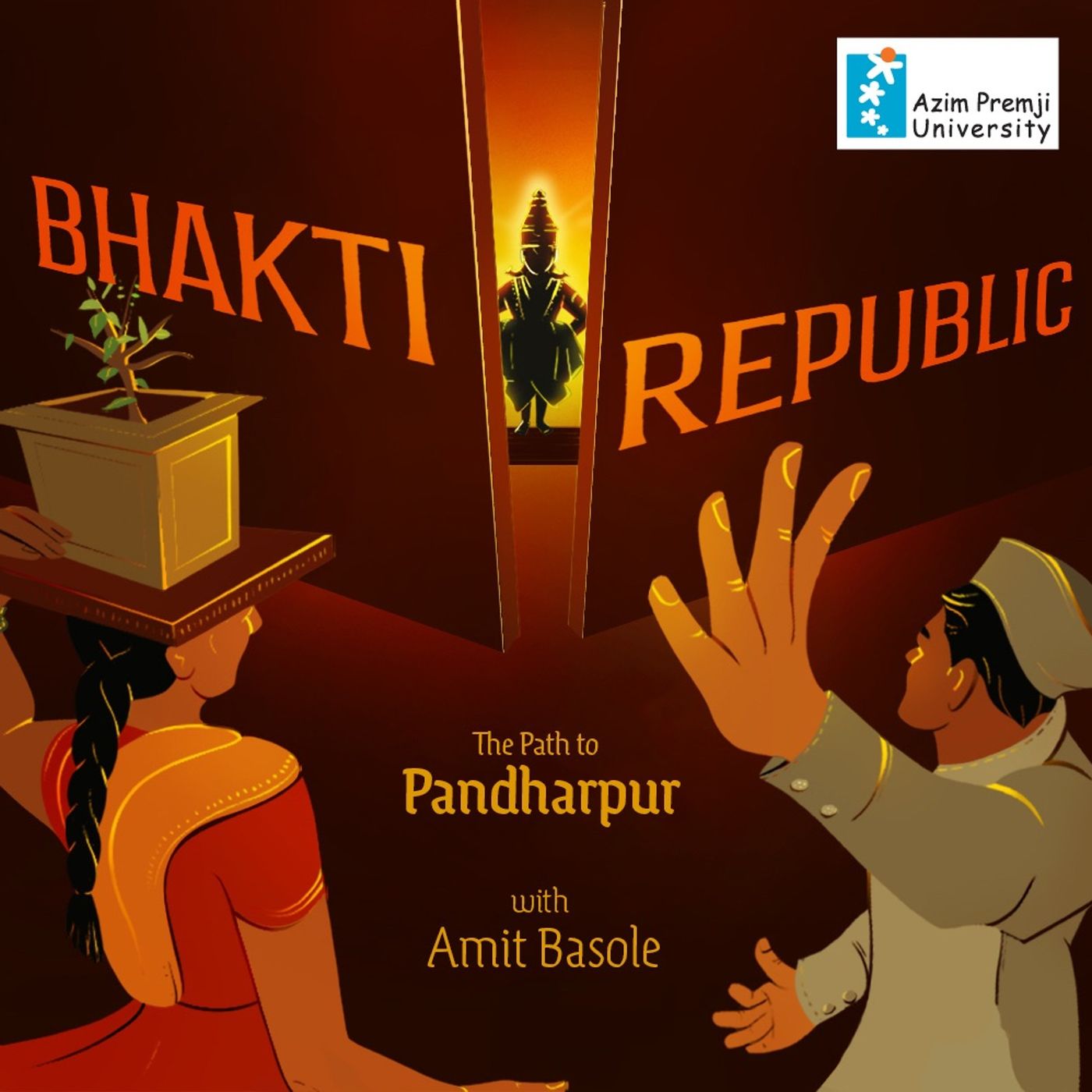
The distinguished anthropologist Irawati Karwe wrote, “I found a new definition of Maharashtra: the land whose people go to Pandharpur for pilgrimage.” Pandharpur, near the city of Solapur, is a sacrosanct destination for the Varkari path within Hinduism, centred around the worship of the deity Vitthal or Vithoba, a form of Vishnu. The Varkaris are a part of the Bhakti movement, a spiritual tradition characterised by the immersive loving worship of a chosen deity. The word ‘Varkari’ means “one who performs the vari”— vari in Marathi refers to the annual 21-day pilgrimage to Pandharpur, which devotees of Vitthal perform as an expression...
